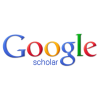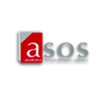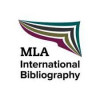Research Article
Issue Editorial Board

He received his doctorate from Marmara University, Istanbul, Turkey. He was appointed to Yıldız Technical University. Between 2014-2015, he conducted research as a visiting scholar at Indiana University-Bloomington in the United States of America with a TÜBİTAK scholarship. He currently continues his research as Prof. Dr. at Yıldız Technical University, Department of Turkish Language and Social Sciences Education.


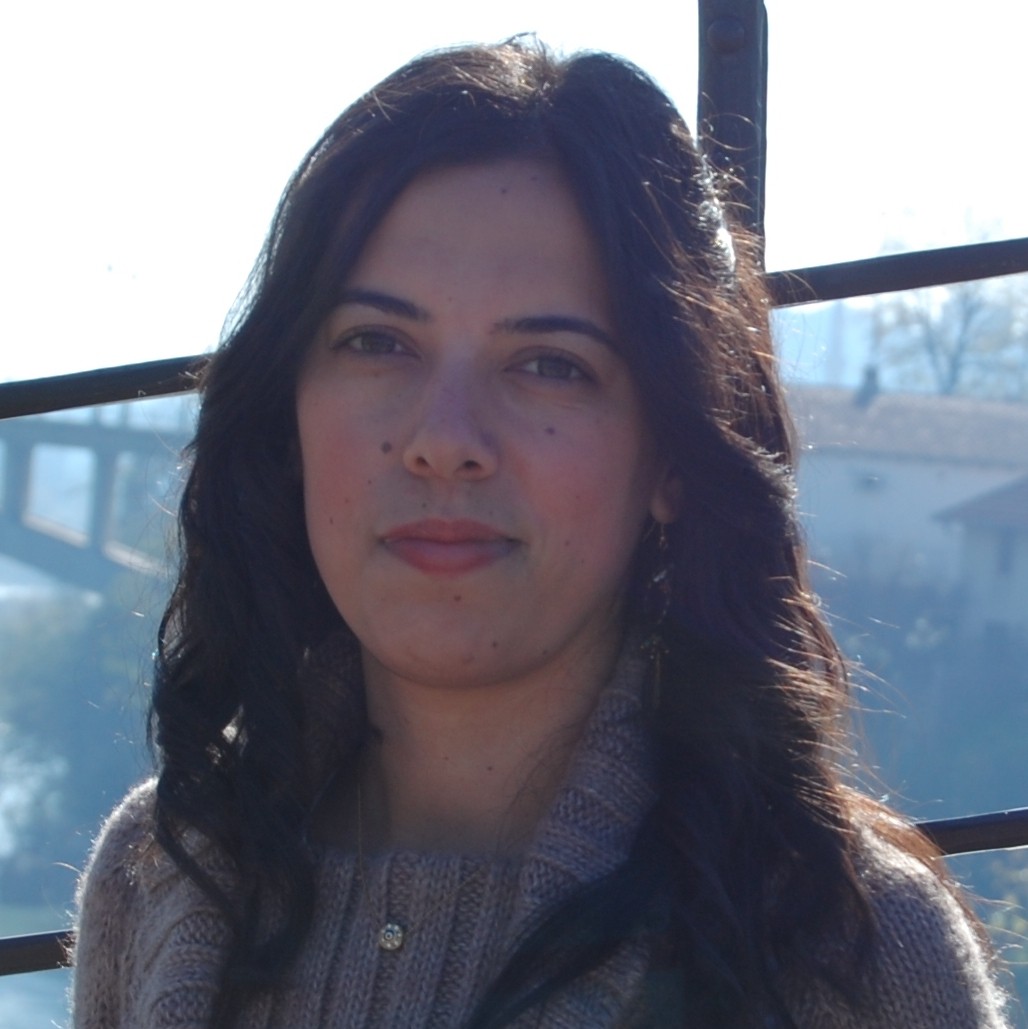

Detaylar:
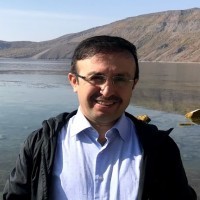
Selim Hilmi Ozkan is Professor of History at the Yildiz Technical University. He is currently working on the Ottoman diplomacy and Ottoman foreign policy. His most recent publications include “Reasons for Migration of Armenians in the Ottoman Empire before 1915”, African and Asian Studies, 19, 3, (2020), 282-305; and “Arms Smuggling across Ottoman Borders in the Second Half of the 19th Century” Journal of Balkan and Near Eastern Studies, 18, 3, (2016), 297-312. He is currently working on a book project: Migrations and Migration Routes from Cebel-i Lebanon to United States of America End of Nineteenth Centuries.

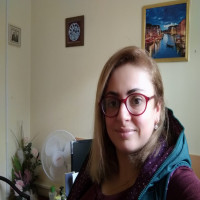
Ebrucan İSLAMOĞLU currently works in Nevşehir Hacı Bektaş Veli University, Faculty of Economics and Administrative Sciences Department of Finance and Banking. She finished department of Statistics at Samsun Ondokuz Mayıs University in 2008.
2004 yılında Boğaziçi Üniversitesi Rehberlik ve Psikolojik Danışmanlık Bölümü’nden mezun olmuştur. 2020 yılında Türk Dili ve Edebiyatı lisans eğitimini, 2021 yılında Tarih lisans eğitimini tamamlamıştır. Yüksek lisans eğitimini Marmara Üniversitesi Halk Eğitimi Ana Bilim Dalı’nda 2010 yılında, doktora eğitimini ise Marmara Üniversitesi Okul Öncesi Öğretmenliği Ana Bilim Dalı’nda 2013 yılında tamamlamıştır. Ulusal ve uluslararası düzeyde pek çok kongre, sempozyum ve konferansa düzenleme kurulu üyesi olarak ve sözlü bildiri sunumları ile katılmıştır. Ulusal ve uluslararası bilimsel kitaplarda ve hakemli dergilerde okul öncesi eğitimi alanıyla ilgili yayınlanmış çok sayıda kitap bölümü ve makalesi bulunmaktadır. Çalışma alanları; ‘erken çocukluk döneminde gelişim, erken çocukluk eğitim programları, erken çocuklukta alternatif eğitim yaklaşım/modelleri, okula uyum, erken okuryazarlık becerileri, erken çocuklukta çevre eğitimi, çocuğu tanıma ve değerlendirme, çocuk ruh sağlığı, çocuklarda sosyal duygusal öğrenme becerileri’dir.

 Web
Web
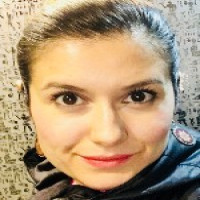
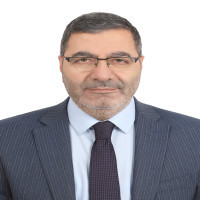
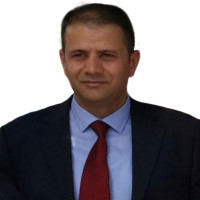

ÖZGEÇMİŞ VE ESERLER LİSTESİ
ÖZGEÇMİŞ
Adı Soyadı: Nalan SINAY
Ünvanı: Yard.Doç.Dr.
İletişim: 0 546 241 87 27
E-mail: nalansin@hotmail.com
Öğrenim Durumu:
Lisans Tez Başlığı ve Tez Danışmanı:
TÜRK TİYATROSUNDA ÇETİN ALTAN VE OYUNLARININ DRAMATURGİK İNCELEMESİ Danışman: Yard. Doç. Dr. Uğur AKINCI
Yüksek Lisans Tez Başlığı (özeti ekte) ve Tez Danışmanı :
YAŞAMI, YAPITLARI VE SANAT ANLAYIŞIYLA SERMET ÇAĞAN
Danışman: Yard. Doç. Dr. Uğur AKINCI
Doktora Tezi Başlığı (özeti ekte) ve Danışmanı :
DEĞİŞEN BEDEN DEĞİŞMEYEN İKTİDAR: 90 SONRASI TÜRK SİNEMASINDA İKTİDARIN YANSIMASI AÇISINDAN ERKEK BEDENİ
Danışman: DOÇ. DR. KADRİYE LEYLA BUDAK
Akademik Ünvanlar:
Yardımcı Doçentlik Tarihi: 21.04.2014
Görevler:
Yönetilen Yüksek Lisans Tezleri:
Abdulkadir Hayranoğlu, (2019). , Din Görevlilerinin İletişim Becerileri Konusunda Cami-Cemati’
nin Algıları ve Beklentileri: Kuzey Kıbrıs Örneği, ULUSLARARASI KIBRIS ÜNİVERSİTESİ/LİSANSÜSTÜ EĞİTİM, ÖĞRETİM VE ARAŞTIRMA ENSTİTÜSÜ/İŞLETME ANABİLİM DALI/PAZARLAMA YÖNETİMİ (YL) (TEZLİ)
İdari Görevler:
2014 – 2015 Eğitim Öğretim Yılı Kıbrıs – Uluslararası Kıbrıs Üniversitesi - İletişim Fakültesi- Fakülte Ders Koordinatörlüğü
2015 – 2016 Eğitim Öğretim Yılı Kıbrıs – Uluslararası Kıbrıs Üniversitesi - İletişim Fakültesi- Fakülte Ders Koordinatörlüğü
2015 – 2016 Eğitim Öğretim Yılı Kıbrıs – Uluslararası Kıbrıs Üniversitesi – Müfredat Komitesi Üyesi
2015 – 2016 Eğitim Öğretim Yılı Kıbrıs – Uluslararası Kıbrıs Üniversitesi - İletişim Fakültesi- Fakülte ECTS Koordinatörlüğü
2016 – 2017 Eğitim Öğretim Yılı Kıbrıs – Uluslararası Kıbrıs Üniversitesi - İletişim Fakültesi- Fakülte Ders Koordinatörlüğü
2016 – 2017 Eğitim Öğretim Yılı Kıbrıs – Uluslararası Kıbrıs Üniversitesi – Müfredat Komitesi Üyesi
2016 – 2017 Eğitim Öğretim Yılı Kıbrıs – Uluslararası Kıbrıs Üniversitesi - İletişim Fakültesi- Fakülte ECTS Koordinatörlüğü
2017 – 2018 Eğitim Öğretim Yılı Kıbrıs – Uluslararası Kıbrıs Üniversitesi - İletişim Fakültesi- Fakülte Ders Koordinatörlüğü
2017 – 2018 Eğitim Öğretim Yılı Kıbrıs – Uluslararası Kıbrıs Üniversitesi – Müfredat Komitesi Üyesi
Bilimsel ve Mesleki Kuruluşlara Üyelikler
1. IBAD- Uluslararası Bilimsel Araştırmalar Dergisi Danışma/ Yayın Kurulu Üyesi
2. IBAD-Uluslararası Bilimsel Araştırmalar Dergisi Hakem Kurulu Üyesi
3. JASSS-Akademik Sosyal Bilimler Araştırma Dergisi Hakem Kurulu
Ödüller:
Türkiye Lions Kulüpleri Federasyonu Üniversiteler arası I.Makale Yarışması, III. Ödülü 2009
Son üç yılda verdiği lisans ve lisansüstü düzeydeki dersler (Açılmışsa, yaz döneminde verilen dersler de tabloya ilave edilecektir):
ESERLER
Uluslararası bilimsel toplantılarda sunulan ve bildiri kitabında (Proceedings) basılan bildiriler :
1. Sınay, Nalan (2009); “90 sonrası Türk Sinemasında “Erkeklik Tasarımı” - 4T TASARIM TARİHİNİN ÖTEKİLERİ, Mayıs 2009, İzmir
2. Sınay, Nalan (2010); “Nesne – Bağlam İlişkisi Açısından Türk Sinemasında Röpteşambır Geleneği”, 4T 2010 NESNEYİ OKUMAK , Mayıs 2010, İzmir
3. Sınay, Nalan (2013); “Bilinçten Bedene Hegemonik Erkeklik: 2000 Sonrası Türk Sinemasında Değişen Erkeklikler”, - 5T 2013 TASARIMDA TOPLUMSAL CİNSİYET / Yerel ve Küresel Bağlam, Mayıs 2013, İzmir
4. Sınay, Nalan (2014); “Tüketim Toplumu Bağlamında Sanatın ve Sanat Eserlerinin Alışveriş Merkezleri’ne Taşınması Sorunsalı” YILDIZ TEKNİK ÜNİVERSİTESİ, Uluslararası Sanat Sempozyumu, Kasım 2014, İstanbul
5. Sınay, Nalan (2015); “Muhteşem Yüzyıl Dizisi ve Toplumsal Dönüşüm” KADİR HAS ÜNİVERSİTESİ, Yeni Medya Çalışmaları Ulusal Sempozyumu, Şubat 2015, İstanbul
6. Sınay, Nalan (2016); “YENİ MEDYA ÇAĞINDA SİNEMANIN GELECEĞİ ve TRANSMEDYA” Fırat Üniversitesi, 1. Uluslararası Sosyal Bilimler Sempozyumu, 13-15 Ekim 2016. ELAZIĞ.
7. Sınay, Nalan (2017); "Yeni Medya Çağında İletişimde Duygusal Zeka: Kiralık Aşk Dizisi ve Facebook Sayfası Örneği" 2. Uluslararası Bilimsel Araştırmalar Kongresi, 20-23 Nisan 2017-İstanbul
8. Sınay, Nalan, Atmaca, S. ve Gökal, H. (2019). “Hep İleride Geleceğin Zirvesinde: Çocuk Üniversitesi, Kıbrıs.” Uluslararası Eğitim Bilim Kongresi ( ICES-UEBK ) 25-28 Nisan 2019. Ankara, Türkiye.
9. Sınay, N. ve Atmaca, S. (2018). “Su Elçileri Projesi Kapsamında Medya Okuryazarlığı.” V. Uluslararası Multidisipliner Çalışmaları Sempozyumu (ISMS) 16-17 Kasım 2018. Ankara, Türkiye
Ulusal Yayınevleri Tarafından Yayımlanan Kitap ve Kitapta Bölüm:
1. Sınay, Nalan (2012); “Yaşamı Yapıtları ve Sanat Anlayışıyle Sermet Çağan”, Mitos-Boyut Yayınları, 2012 İstanbul
2. Sınay, Nalan (2014); “İzmir Kent Ansiklopedisi Biografi Cildi” Apikam Yayınları, 2014 İzmir
3.Sınay, Nalan (2022); “Doğa Temelli Çevre Eğitiminde Bir Araç Olarak Sinemanın Kullanılması” Eğiten Kitap Yayınları, S. 193-200, 2022 Ankara
Projeler
Araştırmacı-Kıdemli Uzman
Türkiye Cumhuriyeti, Lefkoşa Büyükelçiliği Kalkınma Ve Ekonomik İşbirliği Ofisi Projesi. Proje Adı: Hep İleride Geleceğin Zirvesinde: Çocuk Üniversitesi. (Bütçe: 335.000 TL) (Mart 2019-Mart 2020).
Akademik personel için “EĞİTİM/ÖĞRETİM POLİTİKALARI REHBERİ” hazırlanması-2018
Şiddete Karşı İzmir Kadın Koordinasyonu Medya Atölyesi, Yürütücü, 2009 İzmir
Çiğli Belediyesi I.Zafer ve Barış Festivali, Düzenleme Komitesi, Dramaturg, 2005 İzmir
Düzenlediği Çalıştaylar ve Konferanslar
1-‘Düşündüm. İstedim. Gerçekleştirdim' - Yrd. Doç. Dr. Nalan SINAY, Yrd. Doç. Dr. Sevilay ATMACA 4. Uluslararası Kıbrıs Eğitim Araştırmaları Kongresi (KEAB 2018) "Yeni Toplumsal Yapıda Eğitim Araştırmaları" 03-05 Aralık 2018, Final Üniversitesi. 2 saat. Kuzey Kıbrıs Türk Cumhuriyeti.
2-25.11.2015 - 26.11.2015 Tarihlerinde Düzenlenen KKTC Başbakanlık Personel Dairesi
Hizmet İçi Eğitim Programı Çerçevesinde ‘Etkili İletişim Becerileri’
3-19.12.2015 Tarihde Düzenlenen Levent Şirketleri; Hizmet İçi Eğitim Programı Çerçevesinde ‘Etkili İletişim’ Semineri
4-25.02. 2016 KKTC GÜVENLİK KUVVETLERİ KOMUTANLIĞI POLİS GENEL MÜDÜRLÜĞÜ 57. DÖNEM POLİS TEMEL EĞİTİM KURSU ‘BİREYSEL İLETİŞİM’
5-25-26-27 Mayıs 2016 Osmaniye Gazeteciler Cemiyeti Hizmet İçi Eğitim Seminerleri
6- “ETKİLİ İLETİŞİM BECERİLERİ VE PROBLEM ÇÖZME TEKNİKLERİ” SEMİNERİ
19-20-21- Aralık 2018 KKTC İÇİŞLERİ BAKANLIĞI HİZMETİÇİ EĞİTİM
7- Akademik ve İdari Personel Geliştirme Merkezi ile İnsan Kaynakları Müdürlüğü tarafından gerçekleştirilen “Sekreterlere Yönelik Hizmet İçi Eğitim Programı” kapsamında 13 Aralık 2018 “İletişim Becerileri” becerileri semineri
Maddi kazanım elde etmeksizin uzmanlık alanında Medyada (Tv, radyo, gazete, dergi gibi) toplumu bilgilendirmek amacı ile konuk yazar olarak yayın ve söyleşiler yapmak
BRT Bakış Açısı 03.05.2016 “Etkili İletişim Yolları” Uluslararası Kıbrıs Üniversitesi İletişim Fakültesi Öğretim Üyesi Yrd.Doç.Dr.Nalan Sınay ile söyleşi
Ulusal ödül değerlendirme kurulu veya süreli yayında yayın kurulu veya jüri üyeliği
KKTC SİVİL SAVUNMA TEŞKİLAT BAŞKANLIĞI “Liseler Arası Afiş Yarışması” Jüri Üyesi 2015
KKTC MİLLİ EĞİTİM BAKANLIĞI “Meslek Liseleri Bilgi ve Beceri Yarışması” Jüri Üyesi 2015
KKTC SİVİL SAVUNMA TEŞKİLAT BAŞKANLIĞI “Liseler Arası Afiş Yarışması” Jüri Üyesi 2016
KKTC MİLLİ EĞİTİM BAKANLIĞI “Meslek Liseleri Bilgi ve Beceri Yarışması” Jüri Üyesi 2016
Diğer yayınlar :
1. Sınay, Nalan (2009); Türkiye Cumhuriyeti’nin Temeli Laiklik Lions Dersgisi Mart – Nisan 2009
2. Sınay, Nalan (2018); "UKÜ'lü Akademisyen Sınay: "İnsanların muhakeme yetisini kaybettiği için şiddet olaylarında artış oluyor" Kıbrıs Postası Gazetesi 22.06.2018
3. Sınay, Nalan (2018); "Tatilde okunabilecek kitaplar" Yenidüzen Gazetesi 11.07.2018
4. Sınay, Nalan (2018); "Yrd. Doç. Dr. Sınay, Evde İzlenmesi Gereken Filmleri Listeledi" Kıbrıs Manşet 06.08.2018
5. Sınay, Nalan (2018); "Yrd. Doç. Dr. Nalan Sınay, Uzun Yaz Günlerinde Dinlenecek Şarkıları Listeledi" Kıbrıs Postası, 09.08.2018
Etkin hizmet için kazanılan plaket, teşekkür yazısı v.b.
KKTC SİVİL SAVUNMA TEŞKİLAT BAŞKANLIĞI
KKTC MİLLİ EĞİTİM BAKANLIĞI
OSMANİYE GAZETECİLER CEMİYETİ
1 Ocak 1965'te Bakü'de doğdum. 1997-2010 yıllarında Azerbaycan Öğretmenler Enstitüsü'nde sorumlu sekreter, bölüm başkanı, bilimsel işlerden sorumlu rektör yardımcısı olarak çalıştım. Adayımın "Nasireddin Tusi'nin Eserlerinde Eğitim ve Öğretim Sorunları" konulu tezini savunarak 2007 yılında Pedagoji Felsefe Doktoru unvanını, 2009 yılında ise Yüksek Öğretim Kurulu kararıyla doçentlik unvanını aldım. 2004 yılından itibaren Azerbaycan Cumhuriyeti Milli Eğitim Bakanı'nın emriyle Milli Müfredat projesinde, 2011 yılından itibaren Değerlendirme ve İzleme Projesi'nde, 2002-2008 yıllarında ise Azerbaycan dili konusuyla ilgili komisyonlarda üye olarak yer aldı. Cumhuriyet Bilim Olimpiyatları ve Edebiyatı, 2015-2019 yıllarında Azerbaycan Cumhuriyeti Milli Eğitim Bakanlığı Yüksek Okullarının Akreditasyon ve Nostrifikasyon Komisyonunda uzman olarak çalıştım.
Cumhuriyetin çeşitli yüksek okullarında - Bakü Devlet Üniversitesi, Azerbaycan Devlet Petrol ve Sanayi Üniversitesi, Bakü Avrasya Üniversitesi, "Azerbaycan" Üniversitesi'nde pedagoji tarihi ve teorisi, edebiyat öğretim metodolojisi, Azerbaycan edebiyatı tarihi konularında dersler verdim. Türkiye, Makedonya, Fransa, New York, Rusya, Ukrayna, Gürcistan, Bangladeş, Moldova, İsveç ve daha birçok yabancı ülkede uluslararası konferans ve sempozyumlarda konuşmalar yaptım, bilim ve organizasyon komitelerinde üyeliklerde bulundum.
2019-2024 yılında Azerbaycan Devlet Pedagoji Üniversitesi Edebiyat Öğretim Teknolojisi Bölüm Başkanı olarak çalıştım. 8 öğretim kitabı, 2 metodolojik yardım, 19 konu programı, yaklaşık 200 bilimsel-metodik makale ve tezin yazarıyım, ders kitaplarının, öğretim yardımcılarının, metodolojik talimatların ve konu programlarının bilimsel editörü ve incelemecisiyim. Azerbaycan, Türkiye ve Özbekistan'daki uluslararası bilimsel dergilerin yayın kurulu üyesiyim.
2021 yılından bu yana Azerbaycan Cumhuriyeti Cumhurbaşkanına bağlı Yüksek Tasdik Komisyonu Filoloji ve Pedagoji Uzman Konseyi üyesiyim.
2021 yılında Azerbaycan Cumhuriyeti Cumhurbaşkanının Nişanı ile bana "İlerleme" madalyası verildi.
2023 yılında BZT "TURAN" Türkiye Akademisi tarafından Fahri Doktor unvanına layık görüldüm.
2024-2028 yılları için TURAN Akademi Birleşik Aydınlar Teşkilatı'nın Azerbaycan Üniversiteleri Türkiye temsilcisi olarak atandım.
Bilgisayar becerilerim üst düzeydedir. Rusçayı akıcı bir şekilde konuşup yazıyorum.
Evliyim, 3 çocuğum ve 2 torunum var.
İletişim numaraları: +994 50 388 95 53; +994 55 547 31.
Issue Reviewers
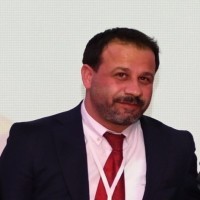
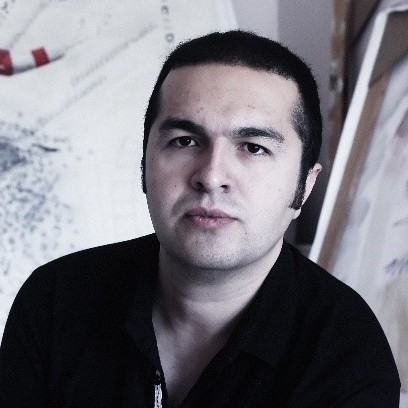
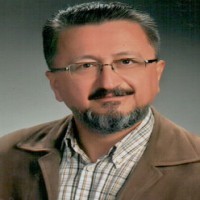

Armağan Seçil Melikoğlu Eke completed her bachelor's degree in Interior Architecture at Karadeniz Technical University in 2005; her master's degree in Interior Architecture at Karadeniz Technical University in 2008; and her doctorate in Interior Architecture at Mimar Sinan Fine Arts University in 2014. She began her academic career at Karadeniz Technical University in 2005 and continued at Istanbul Kültür University and then Trakya University. The researcher, who has won awards in architectural, furniture, and product design competitions, has conducted academic work at the national and international levels in her areas of interest, which include interior design, design education, and livable spaces.
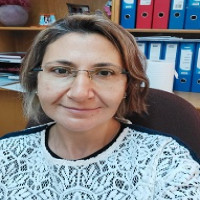
Doktora Eğitimi:
Gazi Üniversitesi Fen Bilimleri Enstitüsü Kazaların Çevresel ve Teknik Araştırması Anabilim Dalı 2014
Tez Konusu: Trafik Güvenliği Kampanya Modeli ve Uygulaması
Yüksek Lisans Eğitimi:
Gazi Üniversitesi Fen Bilimleri Enstitüsü Kazaların Çevresel ve Teknik Araştırması Anabilim Dalı 2006
Tez Konusu: Trafik Kazası Haberlerinin Medyada Sunumunun Cumhuriyet, Hürriyet ve Zaman Gazetesi Örneklerinde İncelenmesi
Lisans Eğitimi :
Gazi Üniversitesi İletişim Fakültesi Radyo Televizyon Sinema Bölümü 2000
İş Deneyimi
Gazi Üniversitesi Memur 2000-Devam
Gazi Üniversitesi Atatürk Mes.Yük.O Genel ve Teknik İletişim dersi Öğretim Görevlisi (yarı zamanlı) 2005-2006
Gazi Üniv. Teknik Eğitim Fakültesi Temel Bilgisayar Bilimleri dersi Öğretim Görevlisi (yarı zamanlı) 2008-2009
Gazi University Journal of Science Technical Editor Part B: Art, Humanities, Design and Planning 2013-Devam
Gazi Üniversitesi Polatlı Sosyal Bilimler Mes.Yük.O Radyo Programcılığı dersi, Hızlı Okuma Güzel Konuşma dersi, Grafik ve Animasyon II dersi, Haber Toplama ve Yazma II dersi Öğretim Görevlisi (yarı zamanlı) 2016-2017
Gazi Üniversitesi Polatlı Sosyal Bilimler Mes.Yük.O Grafik ve Animasyon I dersi, Haber Toplama ve Yazma I dersi, Televizyon Draması dersi Öğretim Görevlisi (yarı zamanlı) 2017-2018
Gazi Üniversitesi Eczacılık Fakültesi Halkla ilişkiler dersi Öğretim Görevlisi (yarı zamanlı) 2019-2020
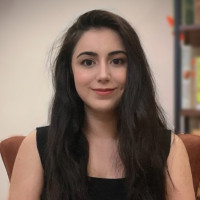
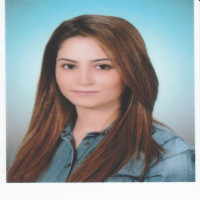

Sakarya Üniversitesi Eğitim Fakültesi Sosyal Bilgiler Eğitimi
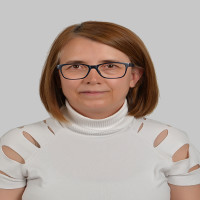


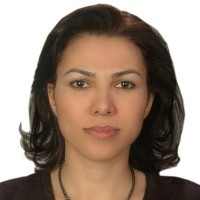
Gaziantep Üniversitesi Gaziantep Eğitim Fakültesi


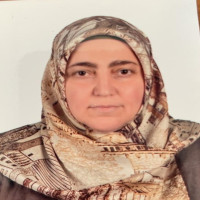
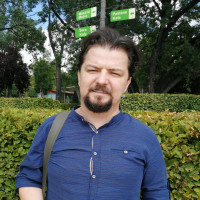







Doç. Dr. GALİP ÇAĞ
1979 yılında Adapazarı’nda doğdu. Aslen Makedonya, Kırçovalıdır. Adapazarı’nda, Hakkı Demir İlkokulu, Mithatpaşa Ortaokulu ve Arifiye Anadolu Öğretmen Lisesi’ni bitirdi. Gazi Üniversitesi Fen-Edebiyat Fakültesi Tarih Bölümü’nde lisans, Sakarya Üniversitesi’nde de yüksek lisans (Yeniçağ) ve doktora (Tarih Anabilim Dalı) eğitimlerini tamamladı. 217. Nolu Tapu Tahrir Defterine Göre Paşa Sancağı ve 16.-17. Yüzyıllarda Osmanlı Hâkimiyetinde Manastır (Bitola) başlıklı tezleri hazırladı. Sakarya, Çankırı Karatekin ve Gazi Üniversitelerinde bölüm başkanlığı ve anabilim dalı başkanlıkları yanında dekan yardımcılığı görevlerini yürüttü. Başta Balkanlar olmak üzere tarihin farklı alanlarına dair dersler verdi. Birçok makale ve 6 adet akademik kitap kaleme aldı. Halen Bolu Abant İzzet Baysal Üniversitesi, Fen Edebiyat Fakültesi, Tarih Bölümü, Yeniçağ Anabilim Dalı’nda lisans, yüksek lisans ve doktora aşamalarında dersler vermektedir. Halen, Ankara’da yaşamaktadır.
Dr. Galip Çağ’ın aşağıdaki akademik çalışmalarının yanında;
- 16. ve 17. Yüzyıllarda Rumeli’de İdari ve İktisadi Yapı, Bir Osmanlı Şehri Manastır (2022, Selenge Yayınları)
- Balkanlar, Öteki Avrupa’nın Kökleri ve İnşası (2021, Otorite Kitap)
- 16. Yüzyılda Osmanlı İdaresinde Bir Rumeli Şehri Kırçova/Kicevo, İdari-İktisadi-Sosyal Durum (2020, Otorite Kitap)
- Nurettin Topçu’yu Anlamak, Izdırabın Dili(2020, Otorite Kitap)
- İbn Haldun Umranında Osmanlı Devleti’nin Kuruluşu(2015, Lotus Yayınları)
- Uluslararası İlişkiler ve Tarih (2015, Lotus Yayınları)
- Avrupa’nın Ötekisi Balkanlar(2012, Çankırı Karatekin Üniversitesi Yayınları)
- Avrasya Paradoksu Beklentiler ve Endişeler(2013, Nobel Yayınları)
öyküleri ve inceleme yazıları Birikim, Edebiyatist, Edebiyat Ortamı, Mahalle Mektebi, Dergah, Hece Öykü, Yedi İklim, Dil ve Edebiyat, İtibar, Mahur Beste, Telmih, Ketebe Piyan, Butimar, Hayal Bilgisi, Hisdüşüm, Serçe Edebiyat, Mahfel, Kurgan Edebiyat, Tahrir, Ayarsız, Arka Kapak, Bağlaç, Sandıkiçi, Balkan Türküsü, Karınca Kardeş, Arasta, Ahval, Kadran, Bengisu, Çakırdikeni dergilerinde yayımlandı. Zaman zaman Ruhunakitap, TASAM, KAFKASSAM gibi online platformlarda yazmaya devam ediyor.
Dr. Galip Çağ’ın “Komşu Kapısı (2014, Meserret Yayınları)”,“Kale Arkası (2015, Meserret Yayınları)” ve “Gidiyoruz Çocuk (2019, Kent Kitap)” isimleriyle 3 de öykü kitabı bulunmaktadır. Akşam Pazarı isimli 4. kitabı da yayınevi tarafından baskıya hazırlanmaktadır.
Ayrıca; “Bisiklet Dağı” öyküsü Sakarya Büyükşehir Belediyesi, Sait Faik Abasıyanık Öykü Yarışması(2021) Mansiyon Ödülüne layık görülmüştür.

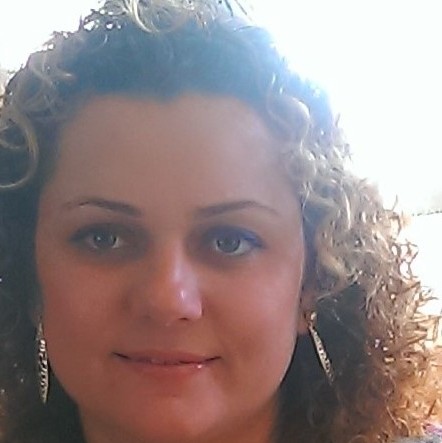
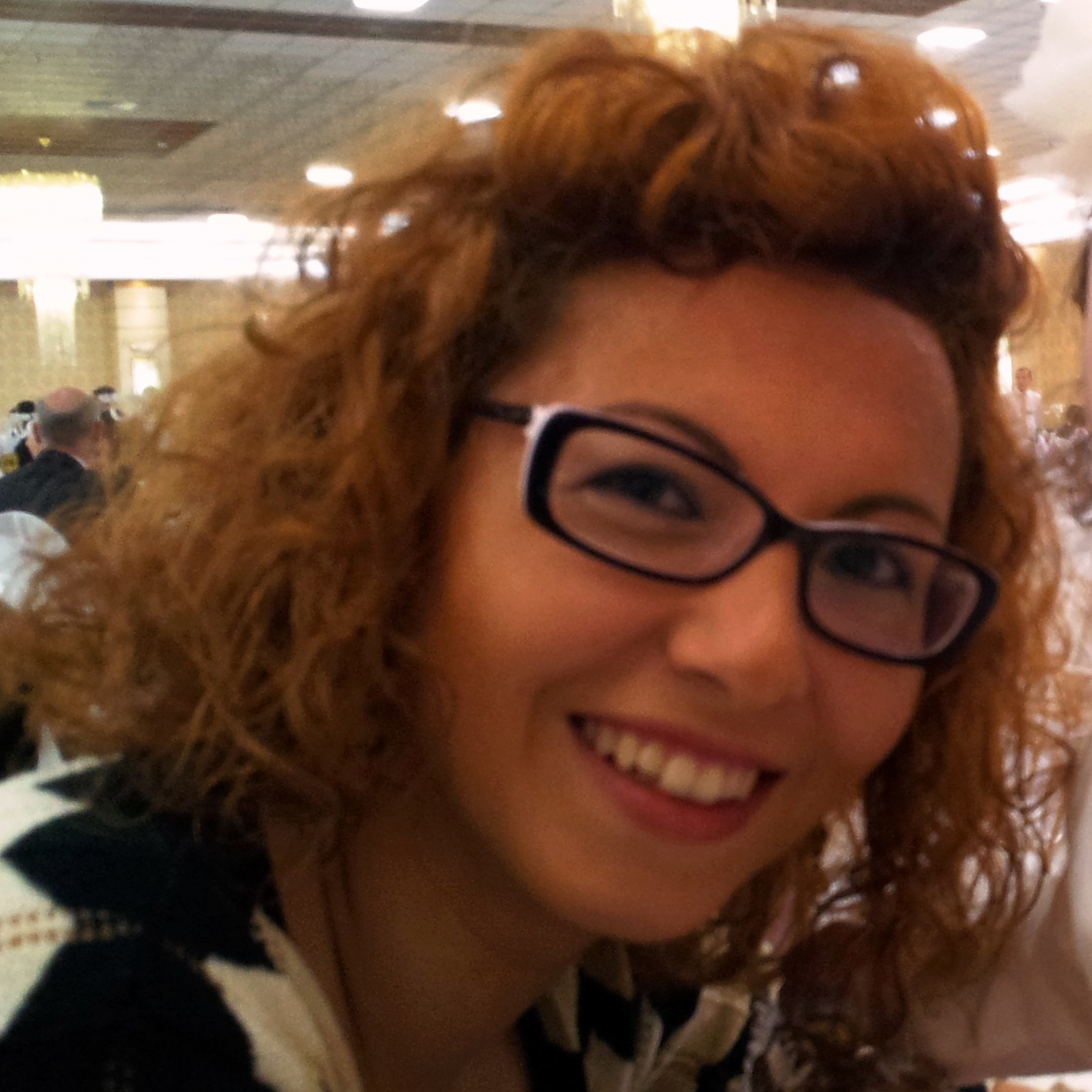
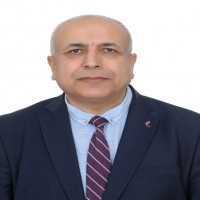

He received his doctorate from Marmara University, Istanbul, Turkey. He was appointed to Yıldız Technical University. Between 2014-2015, he conducted research as a visiting scholar at Indiana University-Bloomington in the United States of America with a TÜBİTAK scholarship. He currently continues his research as Prof. Dr. at Yıldız Technical University, Department of Turkish Language and Social Sciences Education.
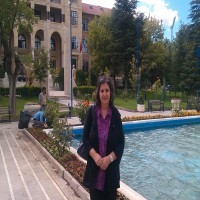
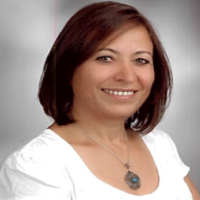
lisans yüksek lisans ve doktora eğitimini hacettepe üniversitesinde tamamladı, halen marmara üniversitesi atatürk eğitim fakültesi eğitim bilimleri rehberlik ve psikolojik danışma anabilim dalında öğretim üyesi olarak çalışmaktadır.
çocuk, ergen ve gençler çalışma grupları olup, kişilik gelişimi, akademik başarı, danışman eğitimi, bireyle ve grupla psikolojik danışma ilgi alanlarını oluşturmaktadır.





Müge YURTSEVER KILIÇGÜN was born in Istanbul in 1977. She completed her secondary education at Terakki Foundation Şişli Terakki High School and earned her bachelor’s degree from Hacettepe University, Department of Child Development and Education in 1999. She worked as a lecturer and program coordinator at the Prof. Dr. Ayla Oktay Application Unit, Marmara University, Faculty of Education, between 2000 and 2011.
She received her M.Sc. in 2002 with the thesis “The Effect of a Native Language Education Program on the Vocabulary Development of Five- and Six-Year-Old Children,” and her Ph.D. in 2009 with the dissertation “Development of the Parent Attitudes toward Children’s Rights Scale and Examination of Parents’ Attitudes toward Children’s Rights in Terms of Various Variables.”
In 2011, she was appointed as an Assistant Professor at Erzincan Binali Yıldırım University, Vocational School of Health Services, Department of Child Development, later joining the Department of Preschool Education in the Faculty of Education in 2012. She served as Head of Department until 2018. She became an Associate Professor in 2020 and was promoted to Professor in 2025.
Prof. Dr. Yurtsever Kılıçgün currently works as a faculty member in the Department of Preschool Education, Erzincan Binali Yıldırım University, teaching and conducting research in early childhood development, education, and children’s rights. Her studies also include research focusing on parents of preschool-aged children.

She was born in 1963 in Dikili,İzmir. She completed her BA, MA and Proficiency in Art studies at Dokuz Eylül University, Faculty of Fine Arts, Department of Textile and Fashion Design. She received the title of Professor in 2010. Nesrin Önlü served as Vice Dean at the same faculty between 2010 and 2015.
Nesrin Önlü worked as Head of Department at the Faculty of Fine Arts, Department of Textile and Fashion Design between 2011-2023. He still continues to work as a Professor in the same department. Nesrin Önlü organized international congresses with the themes of Transformation and Migration in 2014 and 2016. Önlü wrote many articles in her field and held personal exhibitions and participated in national and international congresses and exhibitions.

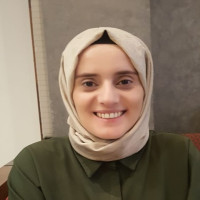

Hasan Ali Yücel Eğitim Fakültesi Dekan yardımcısı.
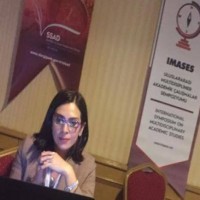
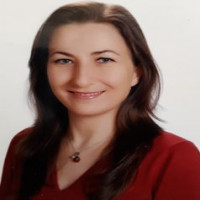
İlk ve ortaokulu Demre'de, liseyi ise (1978-1981) Finike Cumhuriyet Lisesinde bitirdim. Lisans (Fen-Edebiyat Fakültesi Türk Dili ve Edebiyatı-1982-1986), yüksek lisans (Sosyal Bilimler Enstitüsü Türk Dili-1986-1988 "Âlî'nin Künhü'l-Ahbar'ında Sentaks), doktora (Sosyal Bilimler Enstitüsü Türk Dili-1989-1994, "Yemînî'nin Faziletnamesi: Giriş-Metin ve Gramatikal Dizin") eğitimlerimi Erzurum Atatürk Üniversitesinde tamamladım. 1987 yılında Atatürk Üniversitesi Kâzım Karabekir Eğitim Fakültesi Türk Dili ve Edebiyatı Eğitimi Bölümünde araştırma görevlisi oldum, 1994-2001 yılları arasında yardımcı doçent olarak çalıştım, 2001 yılında Akdeniz Üniversitesi Eğitim Fakültesi Sınıf Öğretmenliği anabilim dalında Yrd.Doç. atandım, 2007 yılında doçent, 2013 yılında da aynı fakültenin Türkçe Eğitimi anabilim dalında profesör oldum. Hâlen aynı anabilim dalında görevimi sürdürmekteyim. Evli ve iki çocuk babasıyım. Türk dili ve Türkçe eğitimi alanlarında yayımlanmış birçok kitap, makale ve bildirilerim bulunmaktadır.

Zehra Canan Bayer was born in Trabzon in 1971. After completing her BA in Art History at Mimar Sinan Fine Arts University, she completed her MA in History of Architecture at Istanbul Technical University and her PhD in Western Art and Contemporary Art at Mimar Sinan Fine Arts University. She studied "Military Painter Hüseyin Zekai Pasha and His Works" in her undergraduate program, "A Foreign Architect in Turkey: William James Smith" in her Master's program and "Contributions of Turkish Painters of the Republican Era to the Development of Turkish Painting with Their Writings" in her PhD program.
2010 she joined Kocaeli University Faculty of Fine Arts, Faculty of Basic Arts as a Dr. Lecturer. In 2010, she started to carry out his academic studies at Kocaeli University Faculty of Fine Arts, Department of Basic Education; In 2020, she was entitled to receive the title of Associate Professor. The academician, who still continues to work as a faculty member in the same institution, has two published books, "Bibliography of Exhibitions in Cumhuriyet Press" and "Cumhuriyet's Painter Writings".

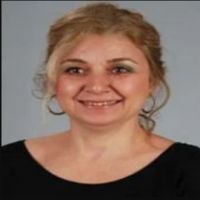
Alan Editörü - Tekstil ve Moda Tasarımı


Aim & Scope
Aim
IBAD Journal of Social Sciences, a fully open-access online journal that publishes peer-reviewed research spanning all fields of the humanities and social sciences, including interdisciplinary studies. It aims to contribute to the exchange of knowledge in the fields of humanities and social sciences by publishing scholarly works that explore the social and cultural characteristics, historical contexts, and contemporary realities of Turks and Türkiye. The journal is committed to publishing articles related to Turks and Türkiye within the scope of humanities and social sciences.
Its target audience includes academics, researchers, professionals, students, and relevant professional and academic institutions with an interest in these topics. It is published semiannually in August and December.
Scope
IBAD Journal of Social Sciences publishes articles that take a scholarly perspective on the social and cultural characteristics of Turks and Türkiye, shedding light on their historical and contemporary realities, identifying challenges, and proposing solutions. In this context, it welcomes a wide range of theoretical, methodological, quantitative, and qualitative research that contributes to the literature. It particularly encourages studies that explore emerging ideas, address fundamental issues, or tackle major societal challenges, regardless of discipline. Interdisciplinary perspectives are also highly valued, especially when they contribute to the advancement of the humanities or social sciences.
Additionally, the editorial board is pleased to accept scholarly works in the humanities or social sciences authored by Turkish researchers or foreign scholars residing in Türkiye even if their topics are not directly related to Turks or Türkiye. This editorial stance is based on the rationale that a subject of interest to a Turkish researcher or a foreign scholar living in Turkey is likely to resonate with the interests of Turkish audiences as well.
The journal focuses on current issues and challenges, as well as past and future perspectives. It features original research and review articles, as well as scientific translations and book reviews.
Primary Topic Categories (including but not limited to)
|
|
1 cultural, social, and linguistic, but not biological. 2 in the context of areas such as education, law, policy, sociology, and economics. 3 including systems, management, financial analysis, and provision, as well as healthcare ethics and policy. 4 not including neuroscience.
Primary Keywords: Family sociology, Archaeology, Religion, Psychology of religion, Sociology of religion, Philosophical movements, Christianity, Communication, Media, Islam, Sociological issues, Television, Turkish language, Turkish literature, Turkish folklore, Turkish legal system, Turkish businesses, Turkish women, Turkish culture, Turkish architecture, Turkish music, Turkish art, Turkish political life, Turkish history, Turkish, Turkish education system, Turkish economy, Turkish public health, Turkish tourism, International relations, Judaism, etc.
IBAD Journal of Social Sciences ensures an efficient submission process for authors. With a rigorous peer-review system and a distinguished Editorial Board, it enables swift and fair publication decisions. Accepted papers are rapidly disseminated through a continuous online publication process, supported by innovative web technologies such as enhanced article templates and article-level metrics.
Author Guidelines
General Information
The article elements should be arranged as follows:
1. Turkish Title
2. Abstract (in Turkish)
3. Keywords (in Turkish)
4. English Title
5. Abstract (in English)
6. Keywords (in English)
7. Introduction
8. Main Text of the Article
9. Conclusion
10. References
- The main headings in the article should be capitalized and set in 12-point font, while subheadings should be in 11-point font.
- The article should be formatted in MS Word A4 size.
- Headers and footers should not be included.
- The font for the article should be Palatino Linotype.
Submission Preparation Checklist
Before submitting the manuscript, author(s) should check the following list.- Does your work align with the journal’s publication policy, aims, and scope?
- Have you included the author name(s), institutional affiliation(s), and email address(es)?
- Have you provided ORCID ID?
- In multi-author submissions, are the author names listed in the correct order?
- Has a corresponding author been designated?
- Have you specified the type of research?
- Does your manuscript include both a Turkish and an English title?
- Does it contain both Turkish and English abstracts?
- Have you included both Turkish and English keywords?
- Has the Copyright Agreement, Conflict of Interest, Author Contribution, and Financial Support Form been completed and signed by all authors?
- Do the in-text citations match the references listed in the bibliography, and vice versa? Are there any missing or incorrect citations, references, or attributions?
- Has the entire manuscript been carefully reviewed for grammar and scientific language?
- Is your manuscript formatted as a Microsoft Word document?
- Have you ensured that the manuscript has not been previously published or submitted for review to any other journal?
- If ethical approval is required for your study, have you obtained and included the necessary ethics committee approval documents?
Required Documents
Authors are required to submit the following documents when submitting a manuscript:
1- Author Contribution Form, Copyright Preference, Conflict of Interest, and Financial Support (Click to download)2- Full manuscript with author names (in Word format)
3- Full manuscript without author names (in Word format)
4- Ethics Committee Approval Certificate for applicable studies (See: Ethical Permission Policy)
5-Copyright Agreement Form (Click to download)Before publication, the final version of the manuscript will be re-evaluated using similarity detection software.
IBAD Journal of Social Sciences provides flexibility in terms of writing rules for our authors at the time of initial submission, as long as the manuscript is formatted properly and remains internally consistent. There is no requirement for a rigid structure before the peer review process, except for the essential components that should be included in the article. The journal does not impose restrictions on writing style, article length, or tables and figures. However, to facilitate the submission process, it recommends authors use the journal's template.
To access the template for submission, click here.
After your article is accepted for publication, a new template file will be sent to you, and you will be requested to edit your article according to the journal spelling rules. In this context, care should be taken to publish the accepted articles in accordance with the following spelling rules:
Main Text: The manuscript must be written in A4 size using MS Word, with the Palatino Linotype font, 11-point size, and single line spacing. The paragraph spacing should be set to 6nk before and after. Tables and figures should be formatted according to page size. For ease of the peer review process, the pages should be numbered.
Guidelines for Article Structure
The Introduction and Conclusion sections are mandatory in the main text.
To ensure academic integrity and consistency in the works published in our journal, we expect manuscripts to be structured according to the following steps. This framework should be applied not only to the full article but also separately to the Öz (Abstract in Turkish) and Abstract (in English) sections.Key Components of a Manuscript:
1. Contextualizing the Research Topic: Providing a broad overview of the subject or problem under discussion.
2. Clearly Defining the Problem and Research Objective: Clearly stating the specific issue being addressed and explaining its significance.
3. Literature Review: Summarizing previous studies related to the topic.
- Has this problem been directly addressed before?
- What are the most influential and recent studies in the field, and what findings have they presented?
- If the problem has not been directly studied, what are the closest related works?
- These questions should be answered, and appropriate references to the literature must be included.
4. Scientific Contribution of the Study:
- How does your research contribute to the existing literature?
- What gap in the literature does it fill?
- What does it introduce that has not been done before?
- This section should convince the reader of the originality and significance of your study.
5. Research Methodology and Implementation:
- A detailed explanation of how the study contributes to the literature.
- This section forms the core of the paper, requiring a systematic presentation of the theories, methods, and materials used.
- The main body of the manuscript should:
- First, establish the theoretical framework.
- Clearly define the methods and materials to be used.
- If necessary and relevant, provide background information on the historical context of the topic.
- Apply the selected theory and methods to concrete examples, demonstrating their implementation.
This structure will enhance the academic quality of the manuscript and help readers better understand the significance and contribution of the research.
Author(s) and Address: Author(s) names should be written in bold, with only the first letter of the first name capitalized, in 10-point size. The institution, country, and email address of the author should be listed in 9-point size. All authors must also include their ORCID ID.
Title:The title should be concise and accurately reflect the content of the paper. It must be written in 12-point bold font with capitalized first letters of each word. Efforts should be made to keep the title as short as possible. Main headings should also be in uppercase, 12-point, bold font.
Abstract: A concise abstract of the article must be included at the beginning, in both Turkish and English, with a length of at least 150 and at most 300 words. A +/-100 word variation is allowed under special circumstances. In all cases, the abstract should not exceed one page, as outlined in the template. Below the abstract, 3-8 keywords should be provided. The abstract must be written in 9-point font, without subheadings, citations, or references. It should encapsulate the introduction, development, and conclusion of the article.Keywords: Key words (3-8) should be in English and Turkish provided below the Abstract to assist with indexing of the article.
Figures: At initial submission, figures should be at good enough quality and high contrast to be assessed by referees, preferably incorporated with the manuscript text in a single Word doc or PDF, although figures can be supplied separately as JPEGs if authors are unable to include them with the text. Figures, tables and illustrations should not exceed 10 pages.
Conference Presentations: Articles that have been presented at a symposium or conference can be published, with the conference name, location, and date specified. For studies supported by research institutions or funds (such as BAP, TÜBİTAK, or the Ministry of Development), the supporting institution and project number should be included in the Acknowledgement section. If the work is derived from a thesis, this should also be noted here.
References: For Turkish articles, "KAYNAKÇA" should be used, while "REFERENCES" should be used for English articles. References should not be numbered, and if they exceed one line, the second line should be indented. The references should be written with single line spacing and paragraph spacing set to 6nk before and after.
Citation Examples in the Text:
One Author:(Akın, 2005, p. 15). (No page number is needed if referring to the entire work).
Two Authors:
If fully in parentheses: (Arıcı & Ungan, 2015, p. 17), otherwise: Arıcı and Ungan (2015, p. 17).
Three or More Authors:
(Aytan et al., 2021, pp. 20-25).
End of Text Reference Examples:For multi-author publications, use "&" between authors as shown in the two-author example. Further details for citations not specified here should remain consistent with the mentioned guidelines.
Journal Articles
The article title should be written in lowercase except for special words, the journal name in italics, volume in italics, issue in parentheses, and page numbers. The DOI should be included with the URL if available. If there is no DOI, online sources should include the full URL.
Kahya, H. (2018). Aday Türk dili ve edebiyatı öğretmenlerinin “edebiyat öğretmeni” kavramına ilişkin algılarının metafor yoluyla analizi. International Journal of Scientific Research, 3(1), 104-117. https://doi.org/10.21733/ibad.343188
Çeliköz, N. & Çeliköz, M. (2018). Öğretmen adaylarının medya ve televizyon okuryazarlık düzeyleri. International Journal of Scientific Research, 3(1), 262-274. https://dergipark.org.tr/tr/pub/ibadjournal/issue/31095/399539
Books
Book titles should be written in lowercase italics except for the first word, and the publisher should be listed without the city of publication.
Kahya, H. (2017). Karamanlıca bir çocuk dergisi: Angeliaforos Çocuklar İçün (1872). Grafiker Publishing.
Arıcı, A. F. and Ungan, S. (2015). Yazılı anlatım el kitabı. Pegem Akademi Publishing.
Book Written by a Corporate Entity
Turkish Language Association. (2005). Turkish Dictionary. TDK Publications. www.sozluk.gov.tr
Book Chapter
Başaran, M. (2019). The Ideal Teacher and Ideal Person in Nurettin Topçu. In A. F. Arıcı & M. Başaran (Eds.), The Ideal Turk (pp. 453-466). Turkish Literature Foundation Publications.
Translated Book
Crystal, D. (2016). What is linguistics? (Trans. A. Benzer). Pegem.Thesis or dissertationFollow the same format as books but in italics with the first letter capitalized. “Unpublished” should not be written.Başaran, M. (2007). İlköğretim 5. sınıf öğrencilerinin hikâye edici metin unsurlarına ilişkin tercihleri. Phd Dissertation, Gazi University, Ankara.Electronical referencesBlok3. (2024, March 8). Vikipedi. https://tr.wikipedia.org/wiki/Blok3 or Blok3. (2024). Vikipedi. https://tr.wikipedia.org/wiki/Blok3Encyclopedia Articles
Bezer, G. Ö. (2009). Seyfeddin Gazi I. In TDV Encyclopedia of Islam (Vol. 37, p. 31). Diyanet Vakfı Publications.Note: In multi-author publications, the format will follow that of two-author publications, with the use of "&" before the last author.Manuscript PreparationThe manuscript should be written in clear, concise and grammatically correct Turkish or English. The manuscript should be in MS Word program, with the Palatino Linotype font, 6nk after and before, 11 font size, single line spacing. The margins are set as follows: top = 55 mm, bottom = 40 mm, right = 40 mm, left = 40 mm. Pages should not be numbered.
Ethical Principles and Publication Policy
Research and Publication Ethics Policy
IBAD Journal of Social Sciences takes the following measures against published articles identified with plagiarism:
1. Immediately contacts the university to which the author(s) is affiliated and requests definitive action.
2. Removes the PDF copy of the article from the website and disables full-text access links. The phrase "Plagiarized Article" is added to the title of the article.
3. Deactivates the author's account and rejects all future article submissions for a period of 3 years.
For studies based on surveys and interviews, the following guidelines must be adhered to:
1) For research in all scientific fields that requires ethical approval, the ethics committee approval must be obtained, indicated in the article, and documented.
2) In research requiring ethics committee approval, information regarding the approval (committee name, date, and approval number) should be included in the methodology section, as well as on one of the first or last pages of the article, and information about the signed informed consent form should be provided in the article.
The journal may publish a special issue upon request by the Editorial Board once a year. The review process and rules for articles submitted for consideration in the special issue are the same as those for regular issues.
The Editorial Board may consider publishing a correction if minor errors that do not affect the findings, interpretations, or conclusions are identified in a published article. However, if there are serious errors or violations that invalidate the findings or conclusions, the article may be retracted. If there are suspicions that the authors have misused the research or publication, or if there is evidence showing the findings are unreliable, or if the institutions of the authors have failed to investigate the matter or if the investigation appears biased or inconclusive, the editors may consider publishing an expression of concern. In cases of correction, retraction, or expression of concern, actions will be taken in accordance with Committee on Publication Ethics (COPE) guidelines.
Since its first issue, IBAD Journal of Social Sciences has adhered to universal publishing standards. The Editorial Board of IBAD Journal of Social Sciences is composed of experts in their fields. The members of the Editorial Board are selected based on their expertise in various disciplines within the social sciences. The Editor-in-Chief may send articles to guest editors, who are faculty members not part of the Editorial Board, for review if the subject of the article requires it.
In IBAD Journal of Social Sciences, if any unethical behavior is observed by editors, reviewers, or authors during the evaluation process or if any unethical situation is encountered in early stages or in a published article, we encourage you to report it to ibadjournaleditor@gmail.com. This will help enhance the quality of our publication. Readers who detect significant errors or inaccuracies in a published article or have any concerns regarding editorial content (such as plagiarism or duplicate publications) can report the issue by emailing ibadjournaleditor@gmail.com. We view complaints as an opportunity for growth and welcome your feedback. Our goal is to respond promptly and constructively. Ethical complaints related to published articles will be investigated, even if a significant amount of time has passed since the publication date. The author will be contacted, and information regarding the complaint or allegations will be provided. If a violation of ethical standards is identified during the investigation, a correction note will be published addressing any publication error, inconsistency, or misleading information.
Authors submitting to IBAD Journal of Social Sciences are expected to consider the feedback and suggestions provided by reviewers and the Editorial Board. If they disagree with certain points, they have the right to submit a reasoned objection. Peer review reports are stored digitally in the DergiPark system. By submitting a manuscript to the journal, authors are deemed to have accepted the journal’s peer review policies and procedures. (See: Review Process)
The Editorial Board reserves the right to make minor revisions that do not alter the essence of an accepted manuscript. If deemed necessary, the Board may also appoint a guest field editor. An author may submit only one manuscript at a time, including co-authored works. Additionally, an author may have no more than one paper published in a single issue. Once a manuscript is published, the author may submit a new manuscript for the following issue.
Editorial Board members are also permitted to submit manuscripts to the journal. However, in such cases, they do not participate in any stage of the editorial process for their own submissions. While the manuscript is undergoing peer review, its authors who also serve as editors have their editorial roles suspended to prevent access to the review process. This ensures the integrity of the double-blind peer review system. The journal ensures that in the last two issues, no more than 25% of published research articles have at least one author who is an editor, Editorial Board member, or reviewer.
IBAD Journal of Social Sciences is published twice a year, in August and December.
Price Policy
IBAD Journal of Social Sciences utilizes paid services for digital publishing, graphic design, typesetting, participation in international indices, and other processes. Therefore, in accordance with Article 44 of the Frequently Asked Questions on the Associate Professorship Criteria by the Interuniversity Board (ÜAK), authors submitting articles are required to pay a participation fee after submission. This fee must be paid in order to initiate the review process for the submitted articles. The fee is collected regardless of whether the article is accepted or rejected. Payment of the fee does not guarantee the acceptance of the article for publication. The acceptance or rejection of the article is determined by the editorial board based on the reviewer reports. Authors whose submissions are rejected by the reviewers will not be refunded the fee paid. By submitting an article to the journal, authors are deemed to have accepted these terms.
Indexes
Citation Indexes
Other Indexes
Journal Boards
Editor-in-chief

He received his doctorate from Marmara University, Istanbul, Turkey. He was appointed to Yıldız Technical University. Between 2014-2015, he conducted research as a visiting scholar at Indiana University-Bloomington in the United States of America with a TÜBİTAK scholarship. He currently continues his research as Prof. Dr. at Yıldız Technical University, Department of Turkish Language and Social Sciences Education.
Baş editör

He received his doctorate from Marmara University, Istanbul, Turkey. He was appointed to Yıldız Technical University. Between 2014-2015, he conducted research as a visiting scholar at Indiana University-Bloomington in the United States of America with a TÜBİTAK scholarship. He currently continues his research as Prof. Dr. at Yıldız Technical University, Department of Turkish Language and Social Sciences Education.
Assistant Editor

Publication Board


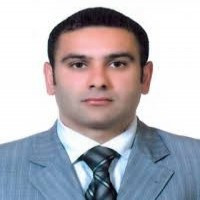
Anar Gafarov 1 Temmuz 1979'da Azerbaycan’da, Bakü’de doğdu. 1997 yılında Bakü’de 177 saylı liseden mezun oldu. 1997-2002 yıllarında Bakü Devlet Üniversitesi İlahiyat Fakültesi’nde "Geleneksel Türk dini inançları ve günümüz Azerbaycan'ındaki tezahürleri" konulu tez çalışmasıyla İlahiyat ve Arap dili öğretmenliği olmakla çift dalda lisans ve yüksek lisans yaptı ve üniversiteyi üstün başarılı diplomayla bitirdi. 2002-2004 yıllarında T.C.Marmara Üniversitesi Sosyal Bilimler Enstitüsü İslam Felsefesi Anabilim Dalında yüksek lisans yaptı ve Prof.Dr. Mustafa Çağrıcı’nın danışmanlığında “Ragıb el-İsfahânî'nin İnsan ve Ahlak Anlayışı” konulu tez çalışmasıyla İslam felsefesi Anabilim Dalından yüksek lisans eğitimini başarıyla tamamladı. A. Gafarov, 2005-2009 yıllarında Ankara Üniversitesi Sosyal Bilimler Enstitüsü Felsefe ve Din Bilimleri Anabilim Dalında doktora eğitimi aldı ve Prof.Dr. Mehmet Bayraktar’ın danışmanlığında hazırladığı “Nasiruddin et-Tûsî'nin Ahlak Felsefesi” konulu doktora tezini başarıyla savunarak felsefe doktoru ünvanını aldı.
Anar Gafarov lisans, yüksek lisans ve doktora yaptığı dönemlerde sosial sorumluluk, bilgi yarışları ve medeniyet projelerinde aktiv iştirak etmiş ve ödüller almıştır. Şöyle ki, A.Gafarov Bakü Devlet Üniversitesi Rektörlüğü tarafından düzenlenen bilgi yarışlarından başarılı olarak “Onur Fermanı (2001)”, Azerbaycan İstanbul Baş Konsolosluğu tarafından düzenlenen "Haydar Aliyev ve Çağdaş Azerbaycan Devleti" konulu bilimsel makale yarışmasında “Başarılı Makale Yazarı (2007)” ve Türkiye Diyanet İşleri Başkanı tarafından Türkiye Diyaner İşleri Vakfı Bakü Türk Lisesi’nde “Yılın Başarılı Öğretmeni (2012)” ödülünü aldı.
2009’da Azerbaycan Cuhuriyeti Dini Kurumlarla İş Üzre Devlet Komiteside kısa süreliğine bölge müşaviri ve dış ilişkiler ve basın güvenliği uzmanı olarak çalışan A.Gafarov, 2010-2014 yıllarında Azerbaycan Slavyan Üniversitesi, Hazar Üniversitesi ve Azerbaycan İktisat Üniversitesinde felsefe ve eğitim tarihi derslerini verdi. Ayrıca 2010-2012-yıllarında Amerika Bileşik Devletlerinin Medivial Lombard Üniversitetsinin İlahiyyat fakültesinde ve diğer üniversitelerin uygun bölümlerinde “Gerçek İslam ve Müslümanlık”, “İslam Düşüncesinde Kamil İnsan Anlayışı” konulu seminar ve konferanslar verdi. Bundan başka, A.Gafarov 2013’te T.C.Sosyal Bilimler Araştırma Dergisinin “Umummilli Lider Haydan Aliyev’in hatırasına” özel sayısının (sayı: 22) hazırlanmasında koodinatör ve hakem olarak katkılarda bulundu. 2012 yılında “Bilimsel Araştırmalar Bağlamında Hukuki, Politik, Sosyal-Ekonomik ve Psikolojik Yönleriyle Ortadoğu Hakikatleri” adlı uluslararası sepmozyum Anar Gafarov’un heyetle beraber T.C.Ortadoğu Araştırmalar Merkezi’nin desteğiyle hazırladığı proje kapsamında gerçekleşmiştir. Yine A.Gafarov 29-30 Mart 2013 tarihlerinde bilimsel katkı sağladığı proje kapsamında "Arşiv Belgelerinde Azerbaycanlıların Soykırımı” ve Azerbaycan ve Türkiye Yazarlar Birliği'nin desteğiyle "Azerbaycan ve Türk Edebiyatında Ermeni Sorunu” konularında Bakü'de düzenlenen uluslararası konferanslarda bilimsel ve uygulamalı faaliyetlerde bulunuldu. Ayrıca A.Gafarov T.C. Aile ve Sosial Politikalar Bakanlığı’nın desteğiyle “Hayallerimiz, Hedeflerimiz ve Değerlerimiz” yönünde projeler gerçekleştirdi ve çocuk evlerinde çalışan eğitimciler için sosial sorumluluk porjeleri kapsamında eğitim-öğretim seminerleri düzenledi. T.C. İLKE (İlim, Kültür ve Eğitim) araştırma merkezinin desteğiyle 2015-2016 yıllarında İstanbul’da düzenlenen “İslam Ahlak Düşüncesi Projesi I: Ahlakın Kaynağı” ve “İslam Ahlak Düşüncesi Projesi II: Vicdan” konulu çalıştaylara “Nasirüddin Tusi’de Ahlaki Önermelerin Kaynağı” və “Nasirüddin Tûsî’de Vicdan Kavramı” konulu çalışmalarıyla bilimsel katkılarda bulunan A.Gafarov’un her iki çalışması ortak yazarlı kitap olarak Nobel yayınlarında basıldı.
A.Gafarov, 2009-2010-yıllarında Azerbaycan Milli Bilimler Akademisi Doğubilimleri (Şarkşünaslık) Enstitüsünde, 2010-2014-yıllarında Felsefe ve Sosyoloji Enstitüsünde araştırmacı, 2014-2017 yıllarında T.C.Bülent Ecevit Üniversitesi İlahiyat fakültesinde sözleşmeli öğretim üyesi, 2017-2021-yılında Azerbaycan Milli Bilimler Akademisi Felsefe ve Sosyoloji Enstitüsünde doçent araştırmacı, 2018-2021 yılında Azerbaycan İlahiyat Enstitüsünde doçent öğretim üyesi olarak çalışdı. A. Gafarov 2021-yılından itibaren Azebaycan İlahiyat Enstitüsü Din Bilimleri Anabilim Dalı Başkanı olarak çalışmatadır. A. Gafarov yurt içi ve yurt dışı üniversitelerde çalıştığı dönemlerde İslam felsefesi, Ahlak felsefesi, Din felsefesi, Kelam, Çağdaş İslam düşüncesi, Dinler tarihi, Mezhepler tarihi, Din psikolojisi, Din sosyolojisi, İslam medeniyet tarihi, Eğitim tarihi, Din eğitimi ve İslam ahlakı alanlarında dersler verdi. Temel bilimsel araştırma alanı İslam felsefesi, İslam siyaset düşüncesi, ahlak felsefesi, siyaset-ahlak ilişkisi, Ortaçağ felsefe tarihi ve ahlak psikolojisidir. Tek ve ortak yazarlı 16 kitabın yazarı olan A. Gafarov Azerbaycan ve Türkiye’de toplam 9 kitabın ilmi redaksiyonluğunu ve 2 kitabın editörlüğünü, felsefe , ahlak felsefesi, tasavvuf ve İslam ahlakı gibi alanlarda Arapça, Farsça, İngilizce ve Türkçe’den 10 kitabın çevirisini yaptı. Yerli ve uluslararası bilimsel dergilerde 25 makalesi yayınlanan A.Gafarov, ayrıca pek çok yerli ve uluslararası konferans ve sempozyumlarda bilimsel araştırmalarıyla katkılarda bulundu, Azerbaycan ve Türkiye’de sosial sorumluluk ve modern bilimsel araştırma yöntemleri alanlarında 11 proje gerçekleçtirdi. Ayrıca A.Gafarov yerli ve uluslararası 8 derginin hakem kurulunda yer almaktadır.
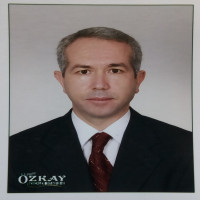
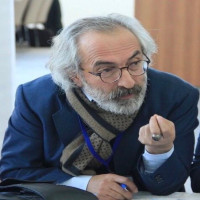
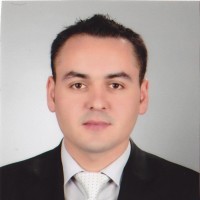
2003 yılında girdiği Ege Üniversitesi Edebiyat Fakültesi Türk Dili ve Edebiyatı Bölümü’ndeki lisans öğrenimini 2007 yılında tamamladı. Aynı üniversite ve bölümde 2007 yılında başladığı yüksek lisans öğrenimini, 2010 Ocak’ta savunduğu “Özbek Çocuk Folklorunda Türler” adlı teziyle tamamladı. 2011 yılında Ege Üniversitesi Sosyal Bilimler Enstitüsü Türk Dünyası Araştırmaları-Türk Halkbilimi anabilim dalında doktora öğrenimine başladı. Doktora çalışmaları kapsamında Amerika Birleşik Devletleri, Kırgızistan, Meksika gibi çeşitli ülkelerde araştırmalarda bulunan Keskin; Prof. Dr. Alimcan İNAYET, Prof. Dr. Özkul ÇOBANOĞLU ve Prof. Dr. Dan BEN-AMOS danışmanlığında hazırladığı “Türk Kültüründe Alkışlar ve Kargışlar: Metin ve Bağlam Merkezli Bir İnceleme” adlı teziyle 2018 yılında doktora öğrenimini tamamladı.
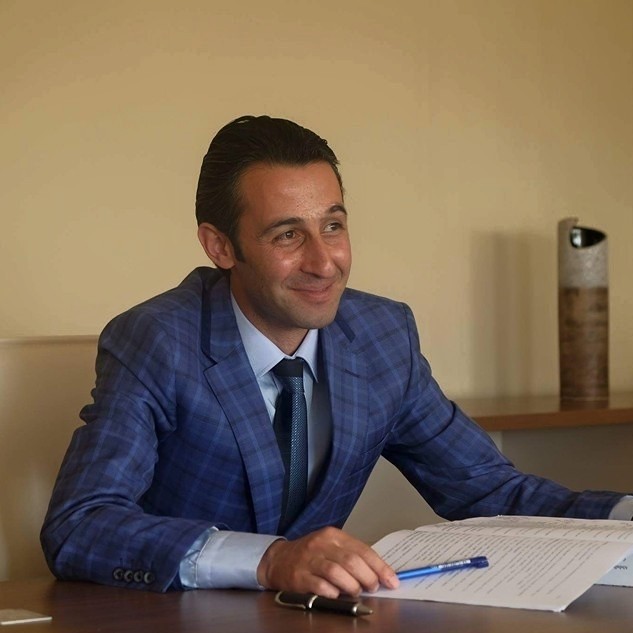


Prof. Ali Fuat Arıcı completed his undergraduate education in the Department of Classroom Teaching at Süleyman Demirel University (1998), and his master's degree (2002) and doctorate (2005) in Turkish Teaching at Atatürk University. After working as a teacher at the Ministry of National Education for 10 years, he was appointed to Dumlupınar University, Faculty of Education, Department of Turkish Education as an Assistant Professor in 2006. Arıcı, who became an Associate Professor in 2011, became a Professor in the field of Turkish Education in 2017. Prof. Arıcı currently works for Yıldız Technical University, Faculty of Education, Department of Social Sciences and Turkish Education. Prof. Dr. Ali Fuat Arıcı has many articles published in journals indexed in national and international directories. Prof. Arıcı's research areas include Turkish language and literature education, and Turkish education.
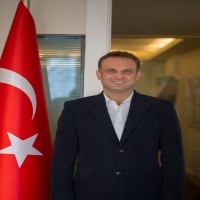
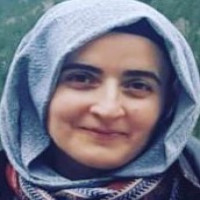
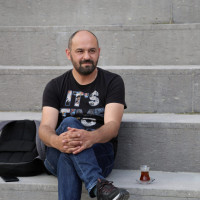
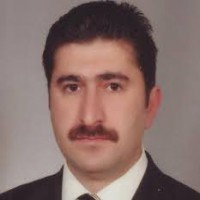
1979 yılında Sinop ili Gerze ilçesi Abdaloğlu köyü Bektaşoğlu mahallesinde doğdu. İlkokul ve lise eğitimini Sinop’ta tamamladı. 2000 yılında Ondokuz Mayıs Üniversitesi Eğitim Fakültesi Tarih Öğretmenliği bölümünü bitirdi. Aynı üniversitede başladığı yüksek lisans eğitimini 2004 yılında bitirdi. Daha sonra Gazi Üniversitesi’nde doktora eğitimine başladı. Bektaşî Tekkelerinin Kapatılması (1826) ve Bektaşîliğin Yasaklı Yılları adlı doktora tezini hazırlayarak 2010 yılında doktor unvanını aldı. Akademik kariyeri 2019 yılında doçent, 2024 yılında profesör unvanına yükseldi. 2012-2022 yılları arası Kastamonu Üniversitesi Tarih bölümünde öğretim üyeliği yaptı. Halen Ankara Hacı Bayram Veli Üniversitesi Lisansüstü Eğitim Enstitüsü Alevi Bektaşi Kültürü Anabilim Dalı öğretim üyesi ve Türk Kültürü Açısından Hacı Bektaş Veli Araştırma Merkezi müdür yardımcısıdır. Temel akademik araştırma alanı Alevilik-Bektaşilik tarihidir. Bektaşi Tekkelerinin Kapatılması (1826), İstanbul Bektaşileri, Girit Bektaşileri, Mehmet Ali Hilmi Dedebaba Kâşifü’l-Esrar Reddiyesi, Zümre-i Nâzenin başta olmak üzere yirmiden fazla eseri ile pek çok akademik ve ilmi makalesi bulunmaktadır.

Ethic Editor

Field Editors


Detaylar:



ÖZGEÇMİŞ VE ESERLER LİSTESİ
ÖZGEÇMİŞ
Adı Soyadı: Nalan SINAY
Ünvanı: Yard.Doç.Dr.
İletişim: 0 546 241 87 27
E-mail: nalansin@hotmail.com
Öğrenim Durumu:
Lisans Tez Başlığı ve Tez Danışmanı:
TÜRK TİYATROSUNDA ÇETİN ALTAN VE OYUNLARININ DRAMATURGİK İNCELEMESİ Danışman: Yard. Doç. Dr. Uğur AKINCI
Yüksek Lisans Tez Başlığı (özeti ekte) ve Tez Danışmanı :
YAŞAMI, YAPITLARI VE SANAT ANLAYIŞIYLA SERMET ÇAĞAN
Danışman: Yard. Doç. Dr. Uğur AKINCI
Doktora Tezi Başlığı (özeti ekte) ve Danışmanı :
DEĞİŞEN BEDEN DEĞİŞMEYEN İKTİDAR: 90 SONRASI TÜRK SİNEMASINDA İKTİDARIN YANSIMASI AÇISINDAN ERKEK BEDENİ
Danışman: DOÇ. DR. KADRİYE LEYLA BUDAK
Akademik Ünvanlar:
Yardımcı Doçentlik Tarihi: 21.04.2014
Görevler:
Yönetilen Yüksek Lisans Tezleri:
Abdulkadir Hayranoğlu, (2019). , Din Görevlilerinin İletişim Becerileri Konusunda Cami-Cemati’
nin Algıları ve Beklentileri: Kuzey Kıbrıs Örneği, ULUSLARARASI KIBRIS ÜNİVERSİTESİ/LİSANSÜSTÜ EĞİTİM, ÖĞRETİM VE ARAŞTIRMA ENSTİTÜSÜ/İŞLETME ANABİLİM DALI/PAZARLAMA YÖNETİMİ (YL) (TEZLİ)
İdari Görevler:
2014 – 2015 Eğitim Öğretim Yılı Kıbrıs – Uluslararası Kıbrıs Üniversitesi - İletişim Fakültesi- Fakülte Ders Koordinatörlüğü
2015 – 2016 Eğitim Öğretim Yılı Kıbrıs – Uluslararası Kıbrıs Üniversitesi - İletişim Fakültesi- Fakülte Ders Koordinatörlüğü
2015 – 2016 Eğitim Öğretim Yılı Kıbrıs – Uluslararası Kıbrıs Üniversitesi – Müfredat Komitesi Üyesi
2015 – 2016 Eğitim Öğretim Yılı Kıbrıs – Uluslararası Kıbrıs Üniversitesi - İletişim Fakültesi- Fakülte ECTS Koordinatörlüğü
2016 – 2017 Eğitim Öğretim Yılı Kıbrıs – Uluslararası Kıbrıs Üniversitesi - İletişim Fakültesi- Fakülte Ders Koordinatörlüğü
2016 – 2017 Eğitim Öğretim Yılı Kıbrıs – Uluslararası Kıbrıs Üniversitesi – Müfredat Komitesi Üyesi
2016 – 2017 Eğitim Öğretim Yılı Kıbrıs – Uluslararası Kıbrıs Üniversitesi - İletişim Fakültesi- Fakülte ECTS Koordinatörlüğü
2017 – 2018 Eğitim Öğretim Yılı Kıbrıs – Uluslararası Kıbrıs Üniversitesi - İletişim Fakültesi- Fakülte Ders Koordinatörlüğü
2017 – 2018 Eğitim Öğretim Yılı Kıbrıs – Uluslararası Kıbrıs Üniversitesi – Müfredat Komitesi Üyesi
Bilimsel ve Mesleki Kuruluşlara Üyelikler
1. IBAD- Uluslararası Bilimsel Araştırmalar Dergisi Danışma/ Yayın Kurulu Üyesi
2. IBAD-Uluslararası Bilimsel Araştırmalar Dergisi Hakem Kurulu Üyesi
3. JASSS-Akademik Sosyal Bilimler Araştırma Dergisi Hakem Kurulu
Ödüller:
Türkiye Lions Kulüpleri Federasyonu Üniversiteler arası I.Makale Yarışması, III. Ödülü 2009
Son üç yılda verdiği lisans ve lisansüstü düzeydeki dersler (Açılmışsa, yaz döneminde verilen dersler de tabloya ilave edilecektir):
ESERLER
Uluslararası bilimsel toplantılarda sunulan ve bildiri kitabında (Proceedings) basılan bildiriler :
1. Sınay, Nalan (2009); “90 sonrası Türk Sinemasında “Erkeklik Tasarımı” - 4T TASARIM TARİHİNİN ÖTEKİLERİ, Mayıs 2009, İzmir
2. Sınay, Nalan (2010); “Nesne – Bağlam İlişkisi Açısından Türk Sinemasında Röpteşambır Geleneği”, 4T 2010 NESNEYİ OKUMAK , Mayıs 2010, İzmir
3. Sınay, Nalan (2013); “Bilinçten Bedene Hegemonik Erkeklik: 2000 Sonrası Türk Sinemasında Değişen Erkeklikler”, - 5T 2013 TASARIMDA TOPLUMSAL CİNSİYET / Yerel ve Küresel Bağlam, Mayıs 2013, İzmir
4. Sınay, Nalan (2014); “Tüketim Toplumu Bağlamında Sanatın ve Sanat Eserlerinin Alışveriş Merkezleri’ne Taşınması Sorunsalı” YILDIZ TEKNİK ÜNİVERSİTESİ, Uluslararası Sanat Sempozyumu, Kasım 2014, İstanbul
5. Sınay, Nalan (2015); “Muhteşem Yüzyıl Dizisi ve Toplumsal Dönüşüm” KADİR HAS ÜNİVERSİTESİ, Yeni Medya Çalışmaları Ulusal Sempozyumu, Şubat 2015, İstanbul
6. Sınay, Nalan (2016); “YENİ MEDYA ÇAĞINDA SİNEMANIN GELECEĞİ ve TRANSMEDYA” Fırat Üniversitesi, 1. Uluslararası Sosyal Bilimler Sempozyumu, 13-15 Ekim 2016. ELAZIĞ.
7. Sınay, Nalan (2017); "Yeni Medya Çağında İletişimde Duygusal Zeka: Kiralık Aşk Dizisi ve Facebook Sayfası Örneği" 2. Uluslararası Bilimsel Araştırmalar Kongresi, 20-23 Nisan 2017-İstanbul
8. Sınay, Nalan, Atmaca, S. ve Gökal, H. (2019). “Hep İleride Geleceğin Zirvesinde: Çocuk Üniversitesi, Kıbrıs.” Uluslararası Eğitim Bilim Kongresi ( ICES-UEBK ) 25-28 Nisan 2019. Ankara, Türkiye.
9. Sınay, N. ve Atmaca, S. (2018). “Su Elçileri Projesi Kapsamında Medya Okuryazarlığı.” V. Uluslararası Multidisipliner Çalışmaları Sempozyumu (ISMS) 16-17 Kasım 2018. Ankara, Türkiye
Ulusal Yayınevleri Tarafından Yayımlanan Kitap ve Kitapta Bölüm:
1. Sınay, Nalan (2012); “Yaşamı Yapıtları ve Sanat Anlayışıyle Sermet Çağan”, Mitos-Boyut Yayınları, 2012 İstanbul
2. Sınay, Nalan (2014); “İzmir Kent Ansiklopedisi Biografi Cildi” Apikam Yayınları, 2014 İzmir
3.Sınay, Nalan (2022); “Doğa Temelli Çevre Eğitiminde Bir Araç Olarak Sinemanın Kullanılması” Eğiten Kitap Yayınları, S. 193-200, 2022 Ankara
Projeler
Araştırmacı-Kıdemli Uzman
Türkiye Cumhuriyeti, Lefkoşa Büyükelçiliği Kalkınma Ve Ekonomik İşbirliği Ofisi Projesi. Proje Adı: Hep İleride Geleceğin Zirvesinde: Çocuk Üniversitesi. (Bütçe: 335.000 TL) (Mart 2019-Mart 2020).
Akademik personel için “EĞİTİM/ÖĞRETİM POLİTİKALARI REHBERİ” hazırlanması-2018
Şiddete Karşı İzmir Kadın Koordinasyonu Medya Atölyesi, Yürütücü, 2009 İzmir
Çiğli Belediyesi I.Zafer ve Barış Festivali, Düzenleme Komitesi, Dramaturg, 2005 İzmir
Düzenlediği Çalıştaylar ve Konferanslar
1-‘Düşündüm. İstedim. Gerçekleştirdim' - Yrd. Doç. Dr. Nalan SINAY, Yrd. Doç. Dr. Sevilay ATMACA 4. Uluslararası Kıbrıs Eğitim Araştırmaları Kongresi (KEAB 2018) "Yeni Toplumsal Yapıda Eğitim Araştırmaları" 03-05 Aralık 2018, Final Üniversitesi. 2 saat. Kuzey Kıbrıs Türk Cumhuriyeti.
2-25.11.2015 - 26.11.2015 Tarihlerinde Düzenlenen KKTC Başbakanlık Personel Dairesi
Hizmet İçi Eğitim Programı Çerçevesinde ‘Etkili İletişim Becerileri’
3-19.12.2015 Tarihde Düzenlenen Levent Şirketleri; Hizmet İçi Eğitim Programı Çerçevesinde ‘Etkili İletişim’ Semineri
4-25.02. 2016 KKTC GÜVENLİK KUVVETLERİ KOMUTANLIĞI POLİS GENEL MÜDÜRLÜĞÜ 57. DÖNEM POLİS TEMEL EĞİTİM KURSU ‘BİREYSEL İLETİŞİM’
5-25-26-27 Mayıs 2016 Osmaniye Gazeteciler Cemiyeti Hizmet İçi Eğitim Seminerleri
6- “ETKİLİ İLETİŞİM BECERİLERİ VE PROBLEM ÇÖZME TEKNİKLERİ” SEMİNERİ
19-20-21- Aralık 2018 KKTC İÇİŞLERİ BAKANLIĞI HİZMETİÇİ EĞİTİM
7- Akademik ve İdari Personel Geliştirme Merkezi ile İnsan Kaynakları Müdürlüğü tarafından gerçekleştirilen “Sekreterlere Yönelik Hizmet İçi Eğitim Programı” kapsamında 13 Aralık 2018 “İletişim Becerileri” becerileri semineri
Maddi kazanım elde etmeksizin uzmanlık alanında Medyada (Tv, radyo, gazete, dergi gibi) toplumu bilgilendirmek amacı ile konuk yazar olarak yayın ve söyleşiler yapmak
BRT Bakış Açısı 03.05.2016 “Etkili İletişim Yolları” Uluslararası Kıbrıs Üniversitesi İletişim Fakültesi Öğretim Üyesi Yrd.Doç.Dr.Nalan Sınay ile söyleşi
Ulusal ödül değerlendirme kurulu veya süreli yayında yayın kurulu veya jüri üyeliği
KKTC SİVİL SAVUNMA TEŞKİLAT BAŞKANLIĞI “Liseler Arası Afiş Yarışması” Jüri Üyesi 2015
KKTC MİLLİ EĞİTİM BAKANLIĞI “Meslek Liseleri Bilgi ve Beceri Yarışması” Jüri Üyesi 2015
KKTC SİVİL SAVUNMA TEŞKİLAT BAŞKANLIĞI “Liseler Arası Afiş Yarışması” Jüri Üyesi 2016
KKTC MİLLİ EĞİTİM BAKANLIĞI “Meslek Liseleri Bilgi ve Beceri Yarışması” Jüri Üyesi 2016
Diğer yayınlar :
1. Sınay, Nalan (2009); Türkiye Cumhuriyeti’nin Temeli Laiklik Lions Dersgisi Mart – Nisan 2009
2. Sınay, Nalan (2018); "UKÜ'lü Akademisyen Sınay: "İnsanların muhakeme yetisini kaybettiği için şiddet olaylarında artış oluyor" Kıbrıs Postası Gazetesi 22.06.2018
3. Sınay, Nalan (2018); "Tatilde okunabilecek kitaplar" Yenidüzen Gazetesi 11.07.2018
4. Sınay, Nalan (2018); "Yrd. Doç. Dr. Sınay, Evde İzlenmesi Gereken Filmleri Listeledi" Kıbrıs Manşet 06.08.2018
5. Sınay, Nalan (2018); "Yrd. Doç. Dr. Nalan Sınay, Uzun Yaz Günlerinde Dinlenecek Şarkıları Listeledi" Kıbrıs Postası, 09.08.2018
Etkin hizmet için kazanılan plaket, teşekkür yazısı v.b.
KKTC SİVİL SAVUNMA TEŞKİLAT BAŞKANLIĞI
KKTC MİLLİ EĞİTİM BAKANLIĞI
OSMANİYE GAZETECİLER CEMİYETİ
2004 yılında Boğaziçi Üniversitesi Rehberlik ve Psikolojik Danışmanlık Bölümü’nden mezun olmuştur. 2020 yılında Türk Dili ve Edebiyatı lisans eğitimini, 2021 yılında Tarih lisans eğitimini tamamlamıştır. Yüksek lisans eğitimini Marmara Üniversitesi Halk Eğitimi Ana Bilim Dalı’nda 2010 yılında, doktora eğitimini ise Marmara Üniversitesi Okul Öncesi Öğretmenliği Ana Bilim Dalı’nda 2013 yılında tamamlamıştır. Ulusal ve uluslararası düzeyde pek çok kongre, sempozyum ve konferansa düzenleme kurulu üyesi olarak ve sözlü bildiri sunumları ile katılmıştır. Ulusal ve uluslararası bilimsel kitaplarda ve hakemli dergilerde okul öncesi eğitimi alanıyla ilgili yayınlanmış çok sayıda kitap bölümü ve makalesi bulunmaktadır. Çalışma alanları; ‘erken çocukluk döneminde gelişim, erken çocukluk eğitim programları, erken çocuklukta alternatif eğitim yaklaşım/modelleri, okula uyum, erken okuryazarlık becerileri, erken çocuklukta çevre eğitimi, çocuğu tanıma ve değerlendirme, çocuk ruh sağlığı, çocuklarda sosyal duygusal öğrenme becerileri’dir.

Ebrucan İSLAMOĞLU currently works in Nevşehir Hacı Bektaş Veli University, Faculty of Economics and Administrative Sciences Department of Finance and Banking. She finished department of Statistics at Samsun Ondokuz Mayıs University in 2008.



Selim Hilmi Ozkan is Professor of History at the Yildiz Technical University. He is currently working on the Ottoman diplomacy and Ottoman foreign policy. His most recent publications include “Reasons for Migration of Armenians in the Ottoman Empire before 1915”, African and Asian Studies, 19, 3, (2020), 282-305; and “Arms Smuggling across Ottoman Borders in the Second Half of the 19th Century” Journal of Balkan and Near Eastern Studies, 18, 3, (2016), 297-312. He is currently working on a book project: Migrations and Migration Routes from Cebel-i Lebanon to United States of America End of Nineteenth Centuries.
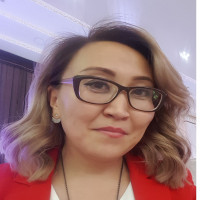



He earned his Ph.D. in Economics from Istanbul Technical University with a dissertation entitled "Essays on Estimation Methods: Three Comparative Essays on Econometrics and Machine Learning.” He mainly specializes in computational social science (CSS), covering deep learning, natural language processing, applied/theoretical econometrics, and statistics. He has taught these for five years at Altınbaş University in the Department of Economics and publishes in CSS. He has completed one international (EU) and five national projects (TUBITAK). He wants to write applied papers utilizing novel deep-learning algorithms in economics, finance, and other fields in social sciences. He won four prizes, including Graduate Thesis by the Turkish Economics Association, the Ibn KHALDUN Prize by the Middle East Economics Association, the Asaf Savaş AKAT Economics Prize by Iktisat ve Toplum Dergisi (Economics and Society Review), and the Academics Prize by Turkish Researchers' Association. In 2022 and 2023, he was awarded the performance award of Outstanding Academic Excellence at Altınbaş University, where he is working.
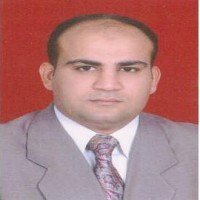
1 Ocak 1965'te Bakü'de doğdum. 1997-2010 yıllarında Azerbaycan Öğretmenler Enstitüsü'nde sorumlu sekreter, bölüm başkanı, bilimsel işlerden sorumlu rektör yardımcısı olarak çalıştım. Adayımın "Nasireddin Tusi'nin Eserlerinde Eğitim ve Öğretim Sorunları" konulu tezini savunarak 2007 yılında Pedagoji Felsefe Doktoru unvanını, 2009 yılında ise Yüksek Öğretim Kurulu kararıyla doçentlik unvanını aldım. 2004 yılından itibaren Azerbaycan Cumhuriyeti Milli Eğitim Bakanı'nın emriyle Milli Müfredat projesinde, 2011 yılından itibaren Değerlendirme ve İzleme Projesi'nde, 2002-2008 yıllarında ise Azerbaycan dili konusuyla ilgili komisyonlarda üye olarak yer aldı. Cumhuriyet Bilim Olimpiyatları ve Edebiyatı, 2015-2019 yıllarında Azerbaycan Cumhuriyeti Milli Eğitim Bakanlığı Yüksek Okullarının Akreditasyon ve Nostrifikasyon Komisyonunda uzman olarak çalıştım.
Cumhuriyetin çeşitli yüksek okullarında - Bakü Devlet Üniversitesi, Azerbaycan Devlet Petrol ve Sanayi Üniversitesi, Bakü Avrasya Üniversitesi, "Azerbaycan" Üniversitesi'nde pedagoji tarihi ve teorisi, edebiyat öğretim metodolojisi, Azerbaycan edebiyatı tarihi konularında dersler verdim. Türkiye, Makedonya, Fransa, New York, Rusya, Ukrayna, Gürcistan, Bangladeş, Moldova, İsveç ve daha birçok yabancı ülkede uluslararası konferans ve sempozyumlarda konuşmalar yaptım, bilim ve organizasyon komitelerinde üyeliklerde bulundum.
2019-2024 yılında Azerbaycan Devlet Pedagoji Üniversitesi Edebiyat Öğretim Teknolojisi Bölüm Başkanı olarak çalıştım. 8 öğretim kitabı, 2 metodolojik yardım, 19 konu programı, yaklaşık 200 bilimsel-metodik makale ve tezin yazarıyım, ders kitaplarının, öğretim yardımcılarının, metodolojik talimatların ve konu programlarının bilimsel editörü ve incelemecisiyim. Azerbaycan, Türkiye ve Özbekistan'daki uluslararası bilimsel dergilerin yayın kurulu üyesiyim.
2021 yılından bu yana Azerbaycan Cumhuriyeti Cumhurbaşkanına bağlı Yüksek Tasdik Komisyonu Filoloji ve Pedagoji Uzman Konseyi üyesiyim.
2021 yılında Azerbaycan Cumhuriyeti Cumhurbaşkanının Nişanı ile bana "İlerleme" madalyası verildi.
2023 yılında BZT "TURAN" Türkiye Akademisi tarafından Fahri Doktor unvanına layık görüldüm.
2024-2028 yılları için TURAN Akademi Birleşik Aydınlar Teşkilatı'nın Azerbaycan Üniversiteleri Türkiye temsilcisi olarak atandım.
Bilgisayar becerilerim üst düzeydedir. Rusçayı akıcı bir şekilde konuşup yazıyorum.
Evliyim, 3 çocuğum ve 2 torunum var.
İletişim numaraları: +994 50 388 95 53; +994 55 547 31.
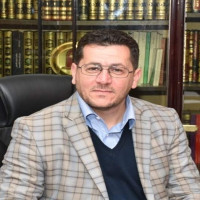


I graduated from the Department of Turkish Philology at Shumen University in 1997. Since 2000, I have been teaching and conducting academic research at the Department of Turkish Language and Literature at Shumen University. I received my PhD in 2018 with my thesis entitled "Contemporary Turkish Legal Terminology". In 2022, I obtained the title of Associate Professor with my monograph entitled "Polite Expressions in Turkish: Words of Address, Greeting, and Farewell". Since 2001, I have authored 11 books related to the teaching of Turkish in schools and universities. I have also contributed to 12 dictionaries in Bulgarian-Turkish and Turkish-Bulgarian languages, covering various fields from commerce to law, gastronomy to the plant kingdom. I have edited books used in elective Turkish language courses in Bulgaria.
Editorial Board
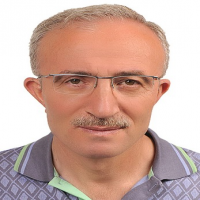





sa

Ebrucan İSLAMOĞLU currently works in Nevşehir Hacı Bektaş Veli University, Faculty of Economics and Administrative Sciences Department of Finance and Banking. She finished department of Statistics at Samsun Ondokuz Mayıs University in 2008.
Statistics Editor

Ebrucan İSLAMOĞLU currently works in Nevşehir Hacı Bektaş Veli University, Faculty of Economics and Administrative Sciences Department of Finance and Banking. She finished department of Statistics at Samsun Ondokuz Mayıs University in 2008.
Language Editors

 Web
Web

Dil Editörleri
Yasemin Temirci, Germany
temirci@hotmail.com
Abdul Basit Sohail, Türkiye
abdulbasitsohail@gmail.com
Advisory Board
I was born in Samsun in 1962. I graduated from high school in 1983 and from Hacettepe University, Faculty of Letters, Department of Turkish Language and Literature in 1987. After teaching for 5 years, I started my master's degree at Samsun 19 May University. I completed my master's degree in 1994 and my doctorate in 1998. After working for 26 years, I retired. Since 2015, I have been working at Istanbul Fatih Sultan Mehmet University.

Lisans, Fırat Üniversitesi Coğrafya
Yüksek Lisans, Marmara Üniversitesi Corğafya Eğitimi
Doktora, Gazi Üniversitesi Coğrafya Öğretmenliği
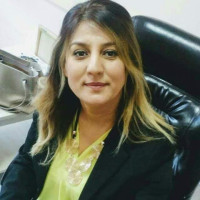

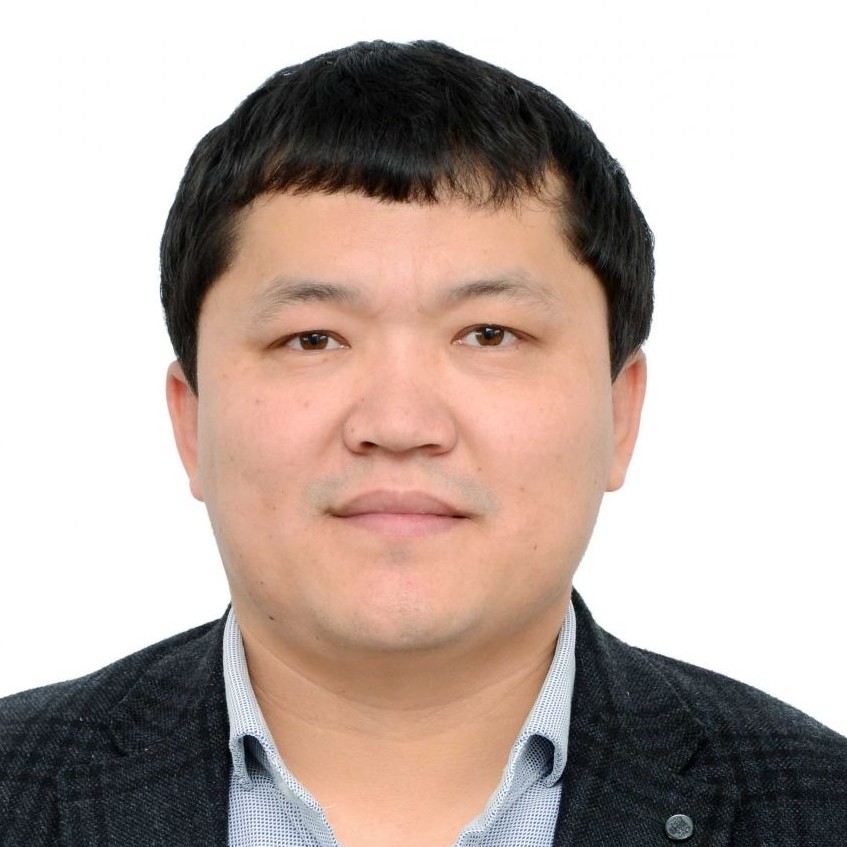
Advisory Board
| NOT: HAKEM KURULU, HER SAYININ JENERİK SAYFASINDA | AYRICA BELİRTİLECEKTİR. |
Prof. Dr. John WENDEL Dokkyo Üniversitesi, JAPONYA Eğitim Bilimleri Prof. Dr. Wan Ahmad Jaafar WAN YAHAYA Sains Malaysia Üniversitesi, MALEZYA Eğitim Bilimleri ve Teknoloji Doç. Dr. Nazile ABDULLAZADE Dilbilim | Prof. Dr. John WENDEL Dokkyo Üniversitesi, JAPONYA Education Prof. Dr. Wan Ahmad Jaafar WAN YAHAYA Education and Technology Assoc. Prof. Dr. Nazile ABDULLAZADE Linguistics |

Marmara Üniversitesi Öğretim Üyesi
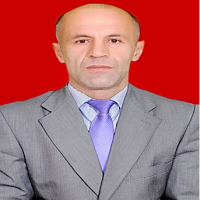
2004 yılında Boğaziçi Üniversitesi Rehberlik ve Psikolojik Danışmanlık Bölümü’nden mezun olmuştur. 2020 yılında Türk Dili ve Edebiyatı lisans eğitimini, 2021 yılında Tarih lisans eğitimini tamamlamıştır. Yüksek lisans eğitimini Marmara Üniversitesi Halk Eğitimi Ana Bilim Dalı’nda 2010 yılında, doktora eğitimini ise Marmara Üniversitesi Okul Öncesi Öğretmenliği Ana Bilim Dalı’nda 2013 yılında tamamlamıştır. Ulusal ve uluslararası düzeyde pek çok kongre, sempozyum ve konferansa düzenleme kurulu üyesi olarak ve sözlü bildiri sunumları ile katılmıştır. Ulusal ve uluslararası bilimsel kitaplarda ve hakemli dergilerde okul öncesi eğitimi alanıyla ilgili yayınlanmış çok sayıda kitap bölümü ve makalesi bulunmaktadır. Çalışma alanları; ‘erken çocukluk döneminde gelişim, erken çocukluk eğitim programları, erken çocuklukta alternatif eğitim yaklaşım/modelleri, okula uyum, erken okuryazarlık becerileri, erken çocuklukta çevre eğitimi, çocuğu tanıma ve değerlendirme, çocuk ruh sağlığı, çocuklarda sosyal duygusal öğrenme becerileri’dir.
ÖZGEÇMİŞ VE ESERLER LİSTESİ
ÖZGEÇMİŞ
Adı Soyadı: Nalan SINAY
Ünvanı: Yard.Doç.Dr.
İletişim: 0 546 241 87 27
E-mail: nalansin@hotmail.com
Öğrenim Durumu:
Lisans Tez Başlığı ve Tez Danışmanı:
TÜRK TİYATROSUNDA ÇETİN ALTAN VE OYUNLARININ DRAMATURGİK İNCELEMESİ Danışman: Yard. Doç. Dr. Uğur AKINCI
Yüksek Lisans Tez Başlığı (özeti ekte) ve Tez Danışmanı :
YAŞAMI, YAPITLARI VE SANAT ANLAYIŞIYLA SERMET ÇAĞAN
Danışman: Yard. Doç. Dr. Uğur AKINCI
Doktora Tezi Başlığı (özeti ekte) ve Danışmanı :
DEĞİŞEN BEDEN DEĞİŞMEYEN İKTİDAR: 90 SONRASI TÜRK SİNEMASINDA İKTİDARIN YANSIMASI AÇISINDAN ERKEK BEDENİ
Danışman: DOÇ. DR. KADRİYE LEYLA BUDAK
Akademik Ünvanlar:
Yardımcı Doçentlik Tarihi: 21.04.2014
Görevler:
Yönetilen Yüksek Lisans Tezleri:
Abdulkadir Hayranoğlu, (2019). , Din Görevlilerinin İletişim Becerileri Konusunda Cami-Cemati’
nin Algıları ve Beklentileri: Kuzey Kıbrıs Örneği, ULUSLARARASI KIBRIS ÜNİVERSİTESİ/LİSANSÜSTÜ EĞİTİM, ÖĞRETİM VE ARAŞTIRMA ENSTİTÜSÜ/İŞLETME ANABİLİM DALI/PAZARLAMA YÖNETİMİ (YL) (TEZLİ)
İdari Görevler:
2014 – 2015 Eğitim Öğretim Yılı Kıbrıs – Uluslararası Kıbrıs Üniversitesi - İletişim Fakültesi- Fakülte Ders Koordinatörlüğü
2015 – 2016 Eğitim Öğretim Yılı Kıbrıs – Uluslararası Kıbrıs Üniversitesi - İletişim Fakültesi- Fakülte Ders Koordinatörlüğü
2015 – 2016 Eğitim Öğretim Yılı Kıbrıs – Uluslararası Kıbrıs Üniversitesi – Müfredat Komitesi Üyesi
2015 – 2016 Eğitim Öğretim Yılı Kıbrıs – Uluslararası Kıbrıs Üniversitesi - İletişim Fakültesi- Fakülte ECTS Koordinatörlüğü
2016 – 2017 Eğitim Öğretim Yılı Kıbrıs – Uluslararası Kıbrıs Üniversitesi - İletişim Fakültesi- Fakülte Ders Koordinatörlüğü
2016 – 2017 Eğitim Öğretim Yılı Kıbrıs – Uluslararası Kıbrıs Üniversitesi – Müfredat Komitesi Üyesi
2016 – 2017 Eğitim Öğretim Yılı Kıbrıs – Uluslararası Kıbrıs Üniversitesi - İletişim Fakültesi- Fakülte ECTS Koordinatörlüğü
2017 – 2018 Eğitim Öğretim Yılı Kıbrıs – Uluslararası Kıbrıs Üniversitesi - İletişim Fakültesi- Fakülte Ders Koordinatörlüğü
2017 – 2018 Eğitim Öğretim Yılı Kıbrıs – Uluslararası Kıbrıs Üniversitesi – Müfredat Komitesi Üyesi
Bilimsel ve Mesleki Kuruluşlara Üyelikler
1. IBAD- Uluslararası Bilimsel Araştırmalar Dergisi Danışma/ Yayın Kurulu Üyesi
2. IBAD-Uluslararası Bilimsel Araştırmalar Dergisi Hakem Kurulu Üyesi
3. JASSS-Akademik Sosyal Bilimler Araştırma Dergisi Hakem Kurulu
Ödüller:
Türkiye Lions Kulüpleri Federasyonu Üniversiteler arası I.Makale Yarışması, III. Ödülü 2009
Son üç yılda verdiği lisans ve lisansüstü düzeydeki dersler (Açılmışsa, yaz döneminde verilen dersler de tabloya ilave edilecektir):
ESERLER
Uluslararası bilimsel toplantılarda sunulan ve bildiri kitabında (Proceedings) basılan bildiriler :
1. Sınay, Nalan (2009); “90 sonrası Türk Sinemasında “Erkeklik Tasarımı” - 4T TASARIM TARİHİNİN ÖTEKİLERİ, Mayıs 2009, İzmir
2. Sınay, Nalan (2010); “Nesne – Bağlam İlişkisi Açısından Türk Sinemasında Röpteşambır Geleneği”, 4T 2010 NESNEYİ OKUMAK , Mayıs 2010, İzmir
3. Sınay, Nalan (2013); “Bilinçten Bedene Hegemonik Erkeklik: 2000 Sonrası Türk Sinemasında Değişen Erkeklikler”, - 5T 2013 TASARIMDA TOPLUMSAL CİNSİYET / Yerel ve Küresel Bağlam, Mayıs 2013, İzmir
4. Sınay, Nalan (2014); “Tüketim Toplumu Bağlamında Sanatın ve Sanat Eserlerinin Alışveriş Merkezleri’ne Taşınması Sorunsalı” YILDIZ TEKNİK ÜNİVERSİTESİ, Uluslararası Sanat Sempozyumu, Kasım 2014, İstanbul
5. Sınay, Nalan (2015); “Muhteşem Yüzyıl Dizisi ve Toplumsal Dönüşüm” KADİR HAS ÜNİVERSİTESİ, Yeni Medya Çalışmaları Ulusal Sempozyumu, Şubat 2015, İstanbul
6. Sınay, Nalan (2016); “YENİ MEDYA ÇAĞINDA SİNEMANIN GELECEĞİ ve TRANSMEDYA” Fırat Üniversitesi, 1. Uluslararası Sosyal Bilimler Sempozyumu, 13-15 Ekim 2016. ELAZIĞ.
7. Sınay, Nalan (2017); "Yeni Medya Çağında İletişimde Duygusal Zeka: Kiralık Aşk Dizisi ve Facebook Sayfası Örneği" 2. Uluslararası Bilimsel Araştırmalar Kongresi, 20-23 Nisan 2017-İstanbul
8. Sınay, Nalan, Atmaca, S. ve Gökal, H. (2019). “Hep İleride Geleceğin Zirvesinde: Çocuk Üniversitesi, Kıbrıs.” Uluslararası Eğitim Bilim Kongresi ( ICES-UEBK ) 25-28 Nisan 2019. Ankara, Türkiye.
9. Sınay, N. ve Atmaca, S. (2018). “Su Elçileri Projesi Kapsamında Medya Okuryazarlığı.” V. Uluslararası Multidisipliner Çalışmaları Sempozyumu (ISMS) 16-17 Kasım 2018. Ankara, Türkiye
Ulusal Yayınevleri Tarafından Yayımlanan Kitap ve Kitapta Bölüm:
1. Sınay, Nalan (2012); “Yaşamı Yapıtları ve Sanat Anlayışıyle Sermet Çağan”, Mitos-Boyut Yayınları, 2012 İstanbul
2. Sınay, Nalan (2014); “İzmir Kent Ansiklopedisi Biografi Cildi” Apikam Yayınları, 2014 İzmir
3.Sınay, Nalan (2022); “Doğa Temelli Çevre Eğitiminde Bir Araç Olarak Sinemanın Kullanılması” Eğiten Kitap Yayınları, S. 193-200, 2022 Ankara
Projeler
Araştırmacı-Kıdemli Uzman
Türkiye Cumhuriyeti, Lefkoşa Büyükelçiliği Kalkınma Ve Ekonomik İşbirliği Ofisi Projesi. Proje Adı: Hep İleride Geleceğin Zirvesinde: Çocuk Üniversitesi. (Bütçe: 335.000 TL) (Mart 2019-Mart 2020).
Akademik personel için “EĞİTİM/ÖĞRETİM POLİTİKALARI REHBERİ” hazırlanması-2018
Şiddete Karşı İzmir Kadın Koordinasyonu Medya Atölyesi, Yürütücü, 2009 İzmir
Çiğli Belediyesi I.Zafer ve Barış Festivali, Düzenleme Komitesi, Dramaturg, 2005 İzmir
Düzenlediği Çalıştaylar ve Konferanslar
1-‘Düşündüm. İstedim. Gerçekleştirdim' - Yrd. Doç. Dr. Nalan SINAY, Yrd. Doç. Dr. Sevilay ATMACA 4. Uluslararası Kıbrıs Eğitim Araştırmaları Kongresi (KEAB 2018) "Yeni Toplumsal Yapıda Eğitim Araştırmaları" 03-05 Aralık 2018, Final Üniversitesi. 2 saat. Kuzey Kıbrıs Türk Cumhuriyeti.
2-25.11.2015 - 26.11.2015 Tarihlerinde Düzenlenen KKTC Başbakanlık Personel Dairesi
Hizmet İçi Eğitim Programı Çerçevesinde ‘Etkili İletişim Becerileri’
3-19.12.2015 Tarihde Düzenlenen Levent Şirketleri; Hizmet İçi Eğitim Programı Çerçevesinde ‘Etkili İletişim’ Semineri
4-25.02. 2016 KKTC GÜVENLİK KUVVETLERİ KOMUTANLIĞI POLİS GENEL MÜDÜRLÜĞÜ 57. DÖNEM POLİS TEMEL EĞİTİM KURSU ‘BİREYSEL İLETİŞİM’
5-25-26-27 Mayıs 2016 Osmaniye Gazeteciler Cemiyeti Hizmet İçi Eğitim Seminerleri
6- “ETKİLİ İLETİŞİM BECERİLERİ VE PROBLEM ÇÖZME TEKNİKLERİ” SEMİNERİ
19-20-21- Aralık 2018 KKTC İÇİŞLERİ BAKANLIĞI HİZMETİÇİ EĞİTİM
7- Akademik ve İdari Personel Geliştirme Merkezi ile İnsan Kaynakları Müdürlüğü tarafından gerçekleştirilen “Sekreterlere Yönelik Hizmet İçi Eğitim Programı” kapsamında 13 Aralık 2018 “İletişim Becerileri” becerileri semineri
Maddi kazanım elde etmeksizin uzmanlık alanında Medyada (Tv, radyo, gazete, dergi gibi) toplumu bilgilendirmek amacı ile konuk yazar olarak yayın ve söyleşiler yapmak
BRT Bakış Açısı 03.05.2016 “Etkili İletişim Yolları” Uluslararası Kıbrıs Üniversitesi İletişim Fakültesi Öğretim Üyesi Yrd.Doç.Dr.Nalan Sınay ile söyleşi
Ulusal ödül değerlendirme kurulu veya süreli yayında yayın kurulu veya jüri üyeliği
KKTC SİVİL SAVUNMA TEŞKİLAT BAŞKANLIĞI “Liseler Arası Afiş Yarışması” Jüri Üyesi 2015
KKTC MİLLİ EĞİTİM BAKANLIĞI “Meslek Liseleri Bilgi ve Beceri Yarışması” Jüri Üyesi 2015
KKTC SİVİL SAVUNMA TEŞKİLAT BAŞKANLIĞI “Liseler Arası Afiş Yarışması” Jüri Üyesi 2016
KKTC MİLLİ EĞİTİM BAKANLIĞI “Meslek Liseleri Bilgi ve Beceri Yarışması” Jüri Üyesi 2016
Diğer yayınlar :
1. Sınay, Nalan (2009); Türkiye Cumhuriyeti’nin Temeli Laiklik Lions Dersgisi Mart – Nisan 2009
2. Sınay, Nalan (2018); "UKÜ'lü Akademisyen Sınay: "İnsanların muhakeme yetisini kaybettiği için şiddet olaylarında artış oluyor" Kıbrıs Postası Gazetesi 22.06.2018
3. Sınay, Nalan (2018); "Tatilde okunabilecek kitaplar" Yenidüzen Gazetesi 11.07.2018
4. Sınay, Nalan (2018); "Yrd. Doç. Dr. Sınay, Evde İzlenmesi Gereken Filmleri Listeledi" Kıbrıs Manşet 06.08.2018
5. Sınay, Nalan (2018); "Yrd. Doç. Dr. Nalan Sınay, Uzun Yaz Günlerinde Dinlenecek Şarkıları Listeledi" Kıbrıs Postası, 09.08.2018
Etkin hizmet için kazanılan plaket, teşekkür yazısı v.b.
KKTC SİVİL SAVUNMA TEŞKİLAT BAŞKANLIĞI
KKTC MİLLİ EĞİTİM BAKANLIĞI
OSMANİYE GAZETECİLER CEMİYETİ
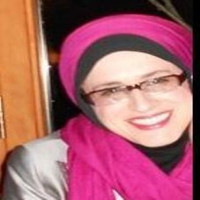
Secretariat & Contact
Education Field Editors

Economics

Ethical Principles & Publication Policy |
This journal adheres to the principles of the Committee on Publication Ethics (COPE). |
IBAD Journal of Social Sciences I (online) ISSN 2687-2811


